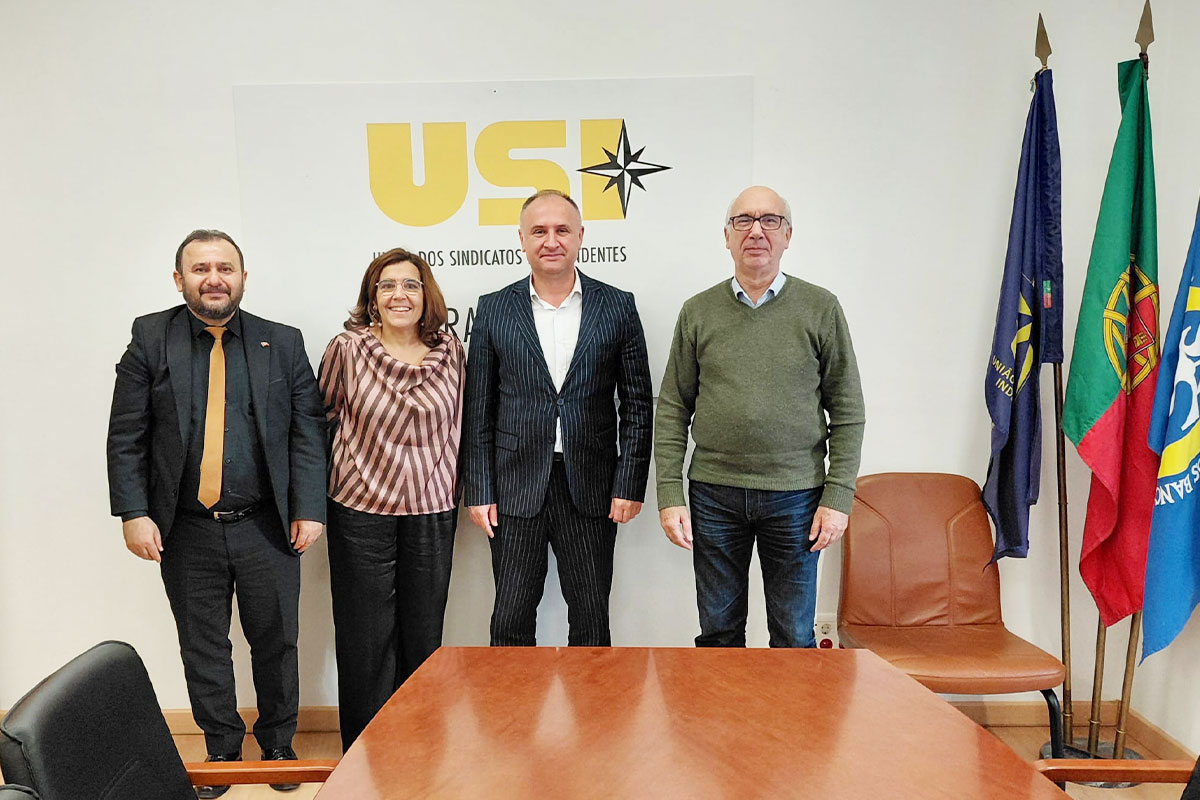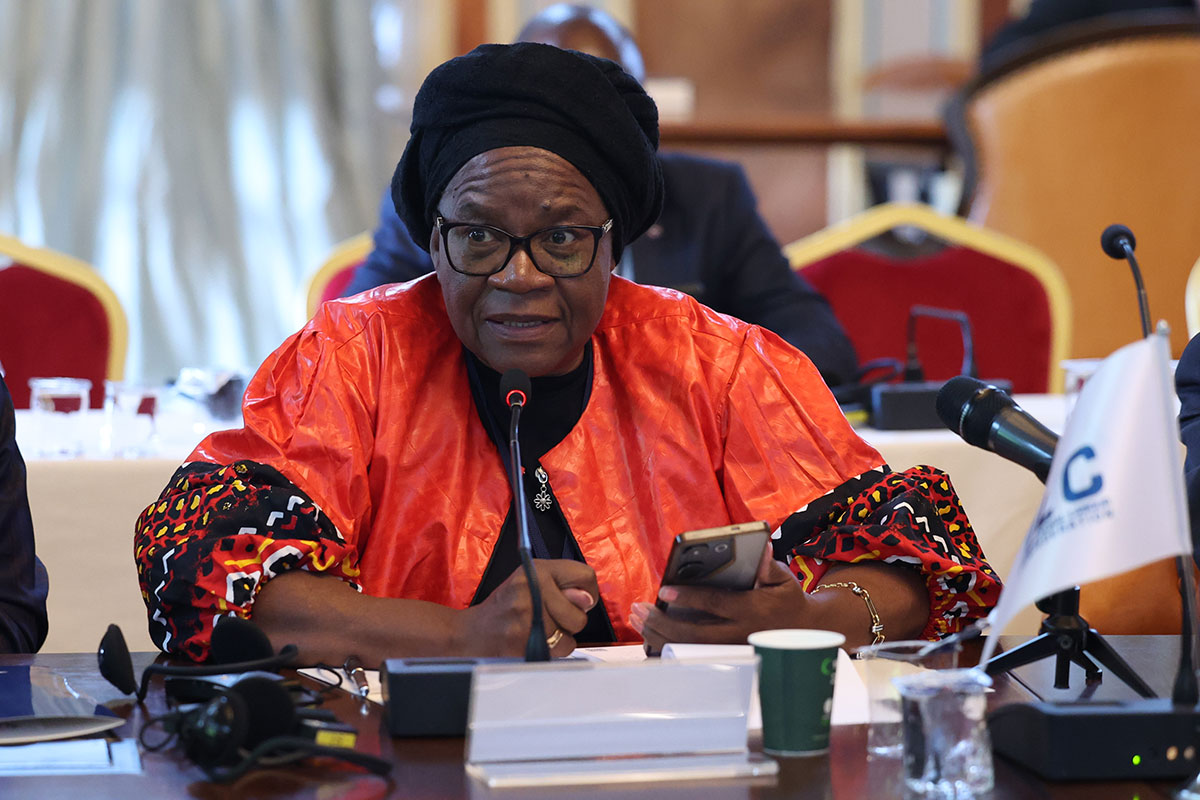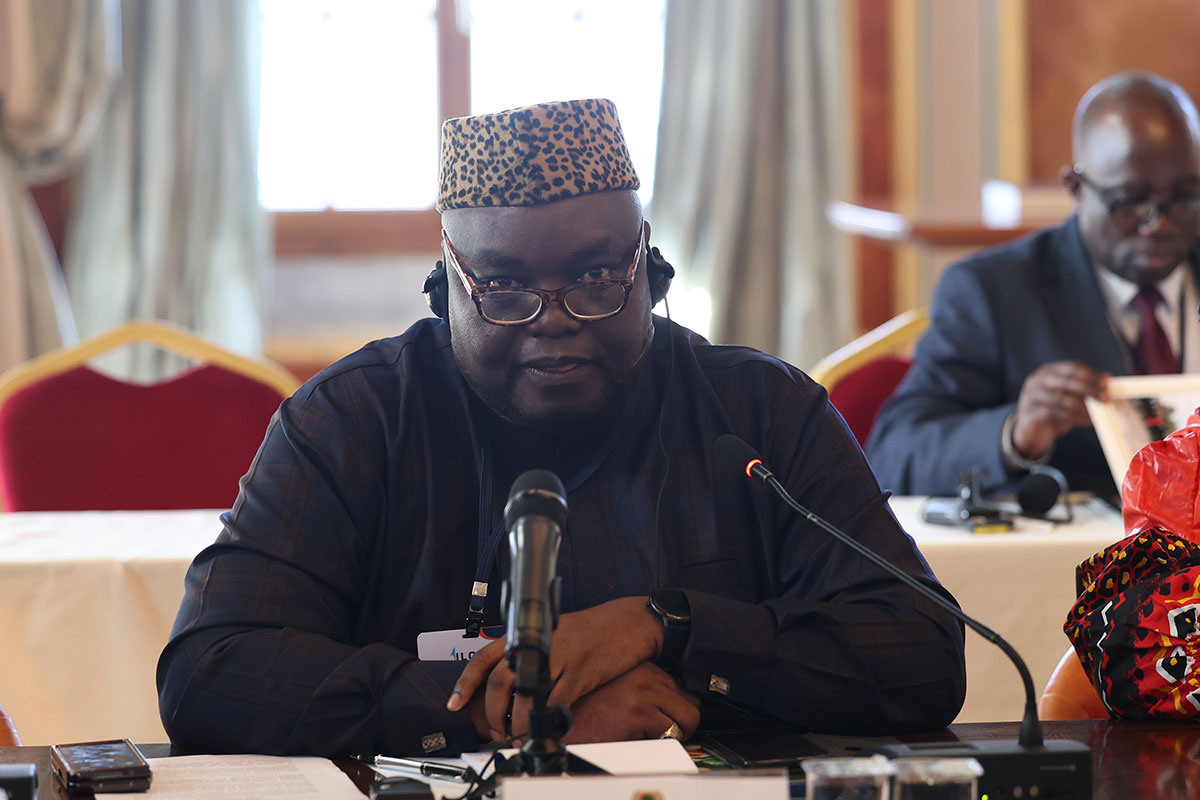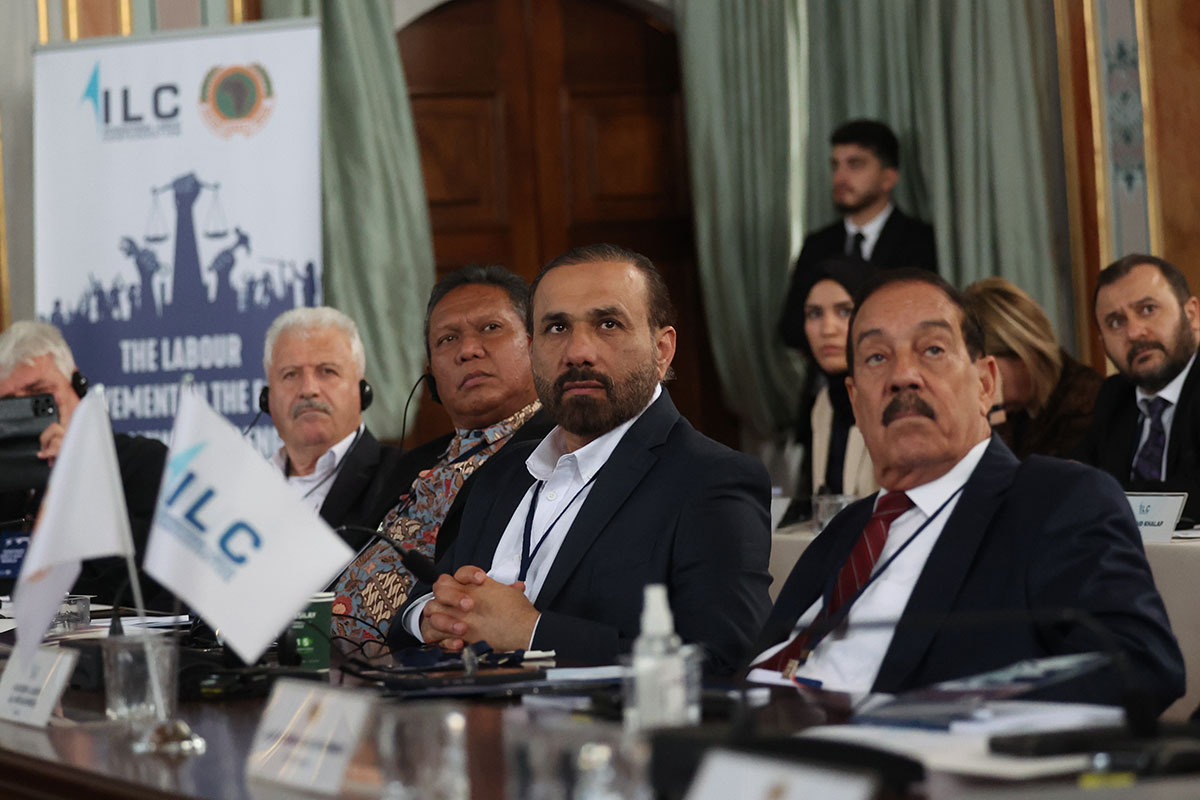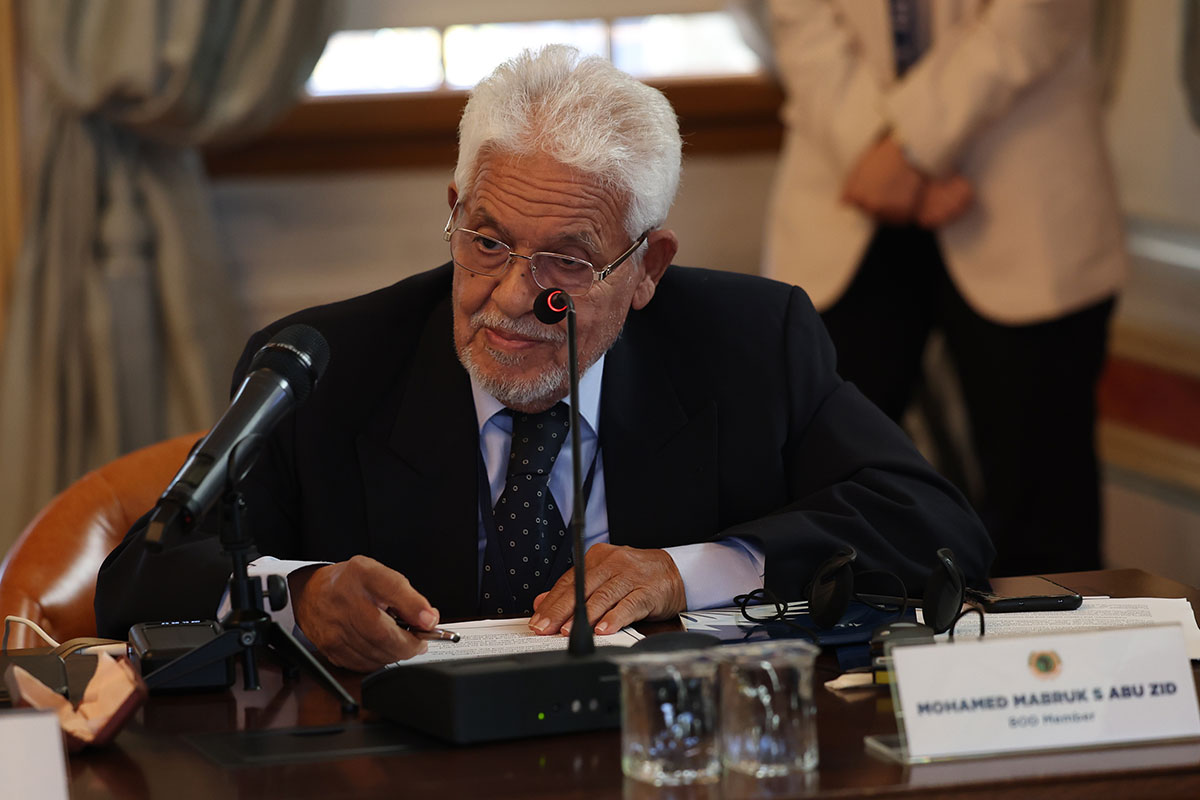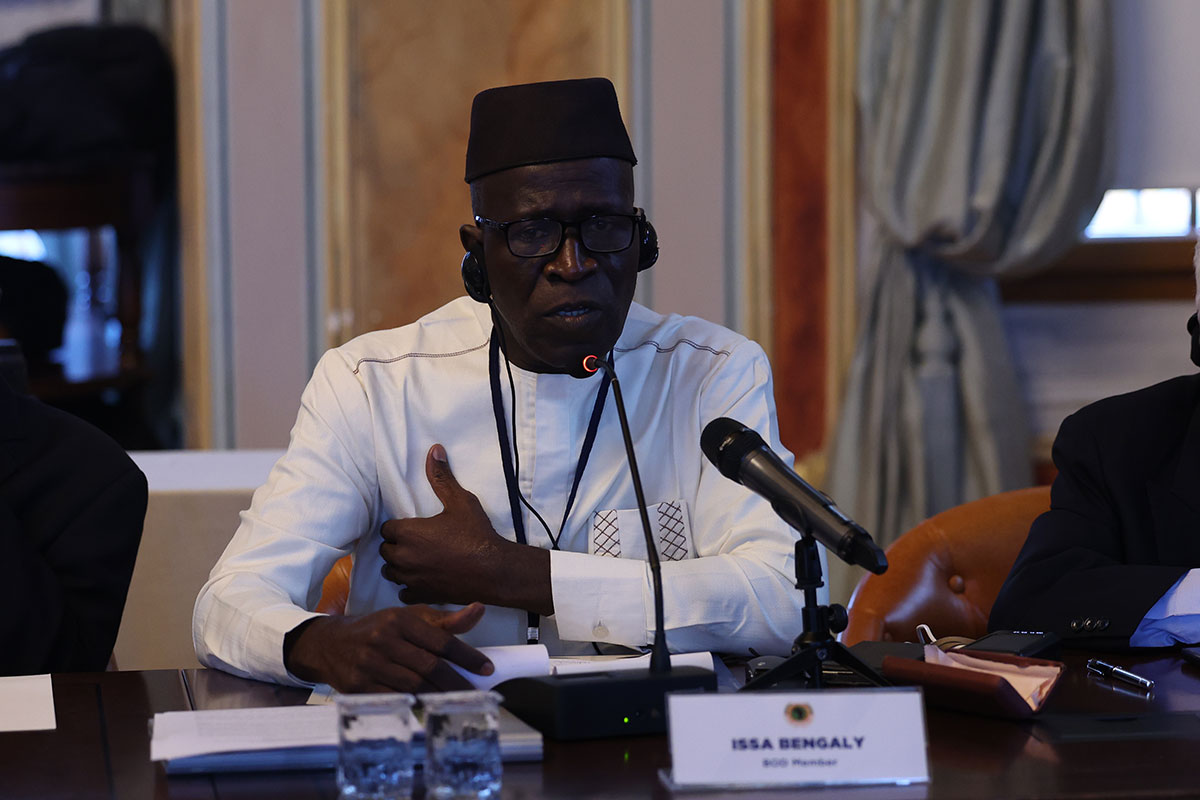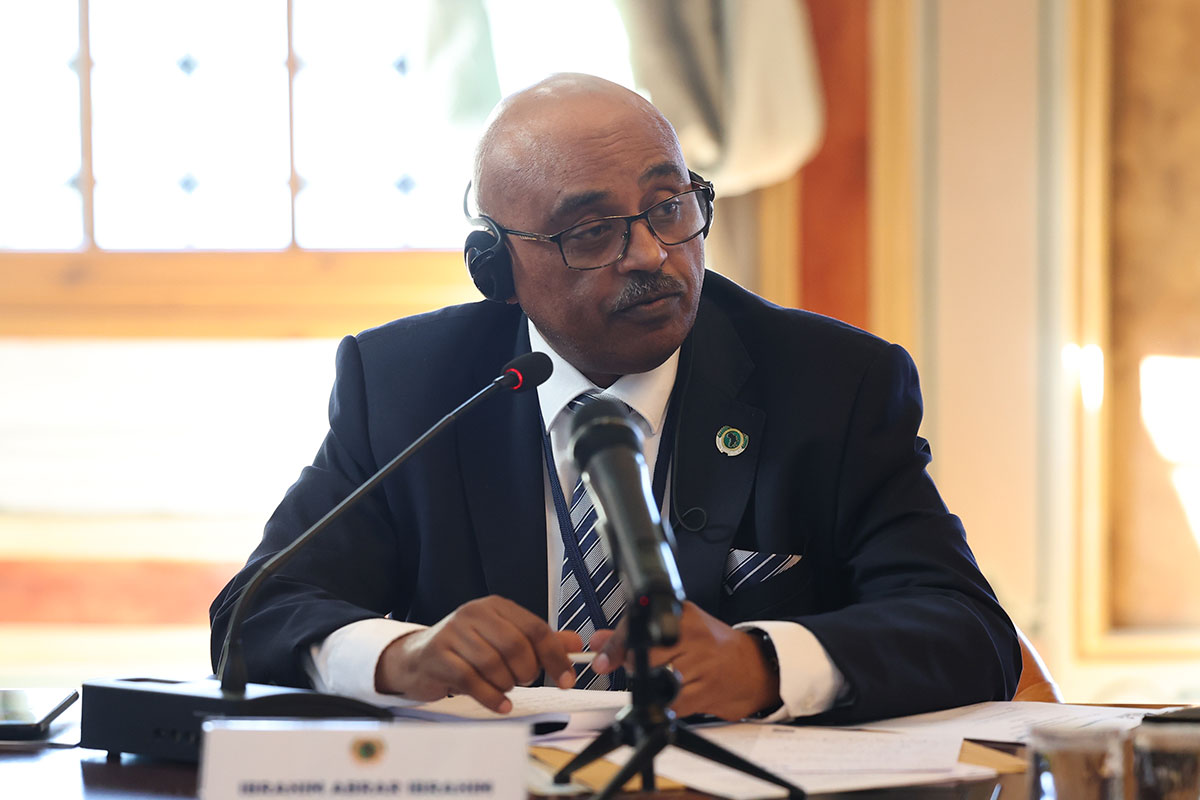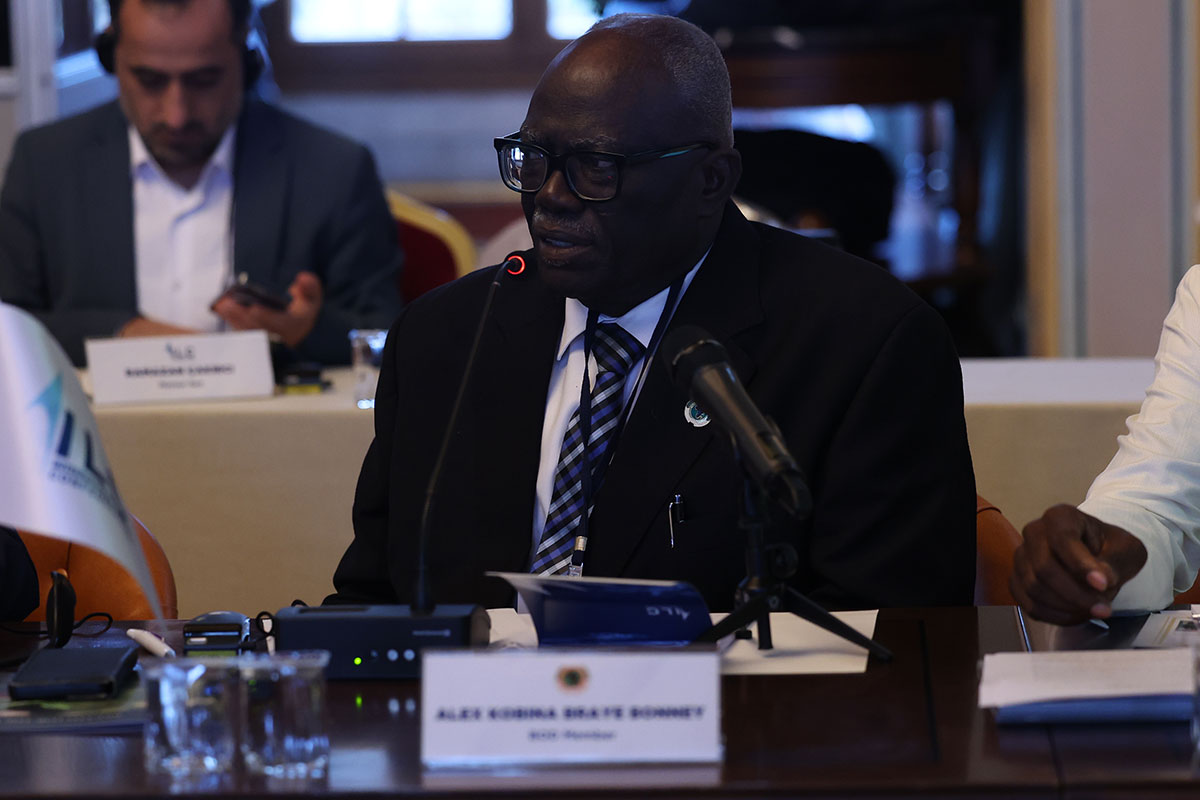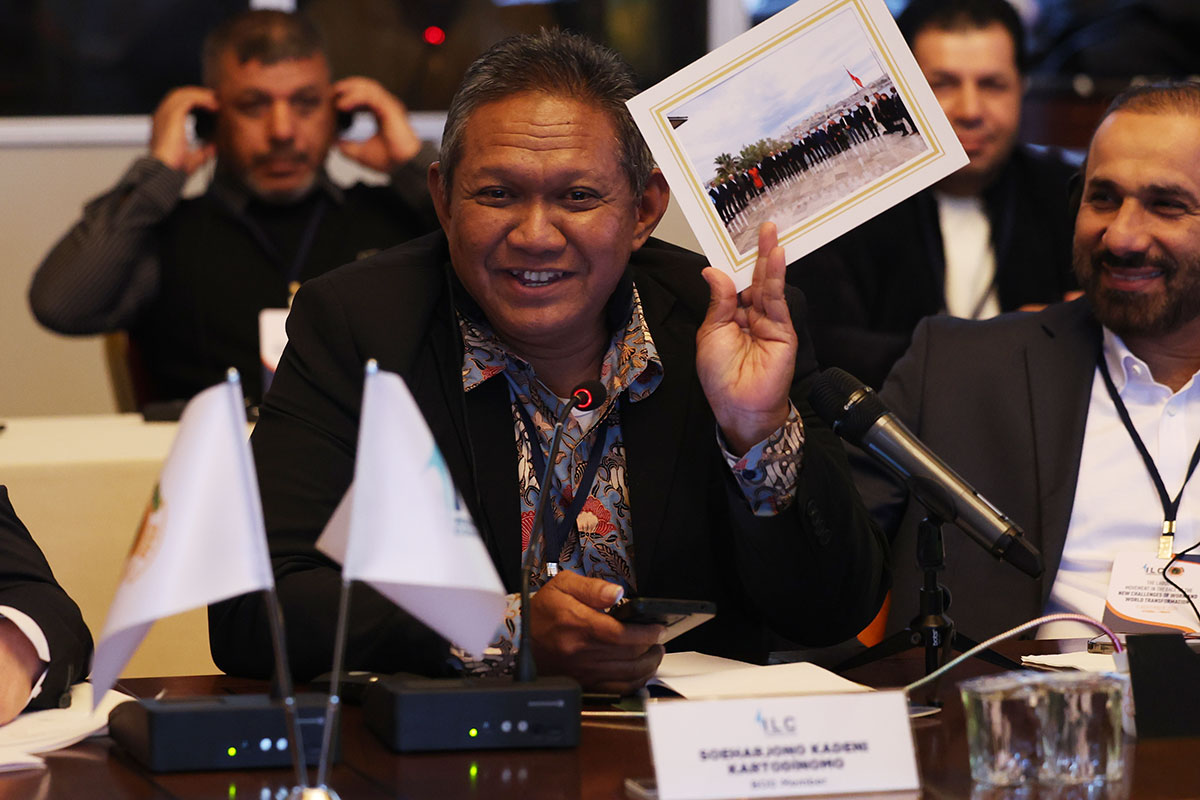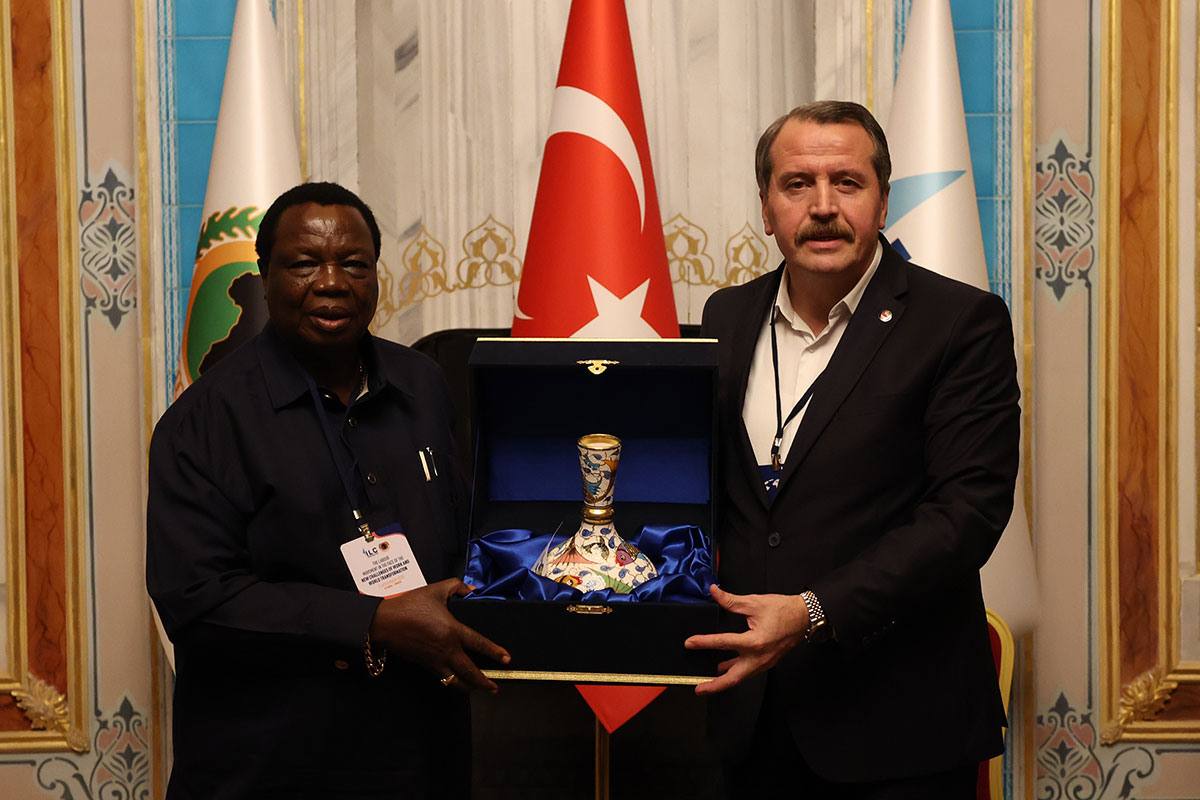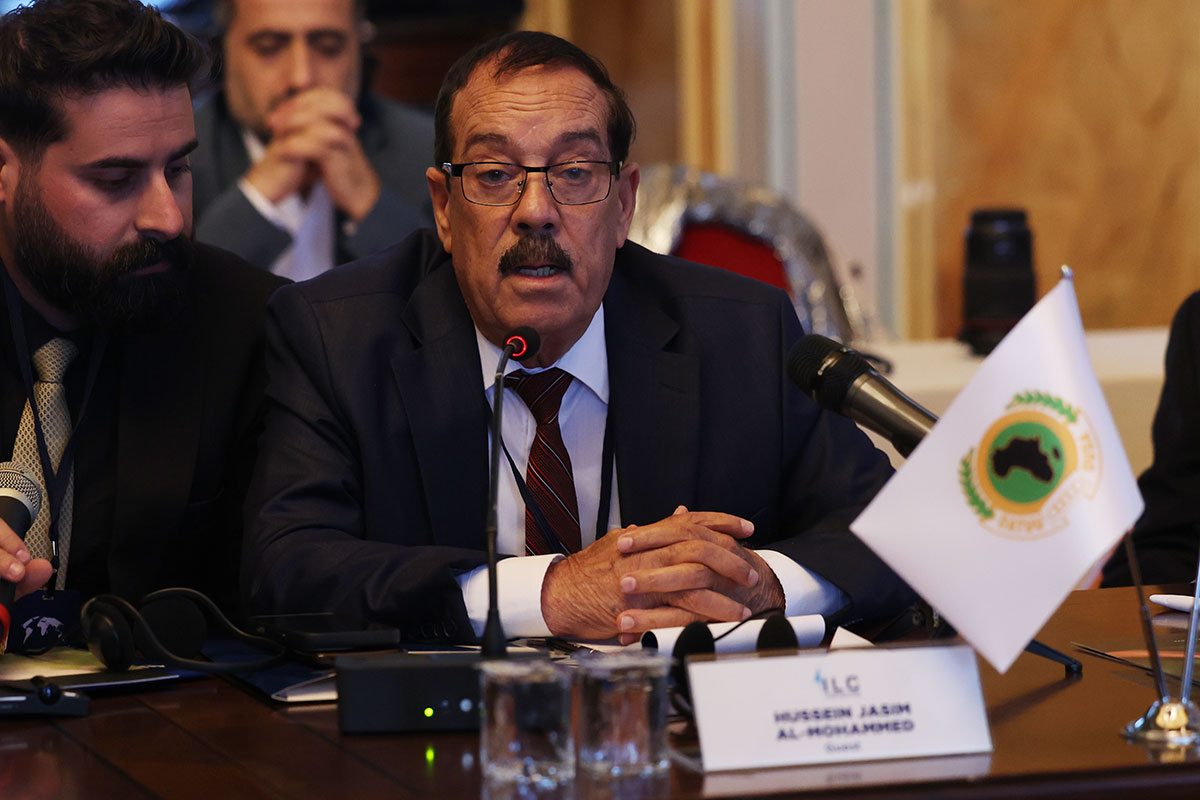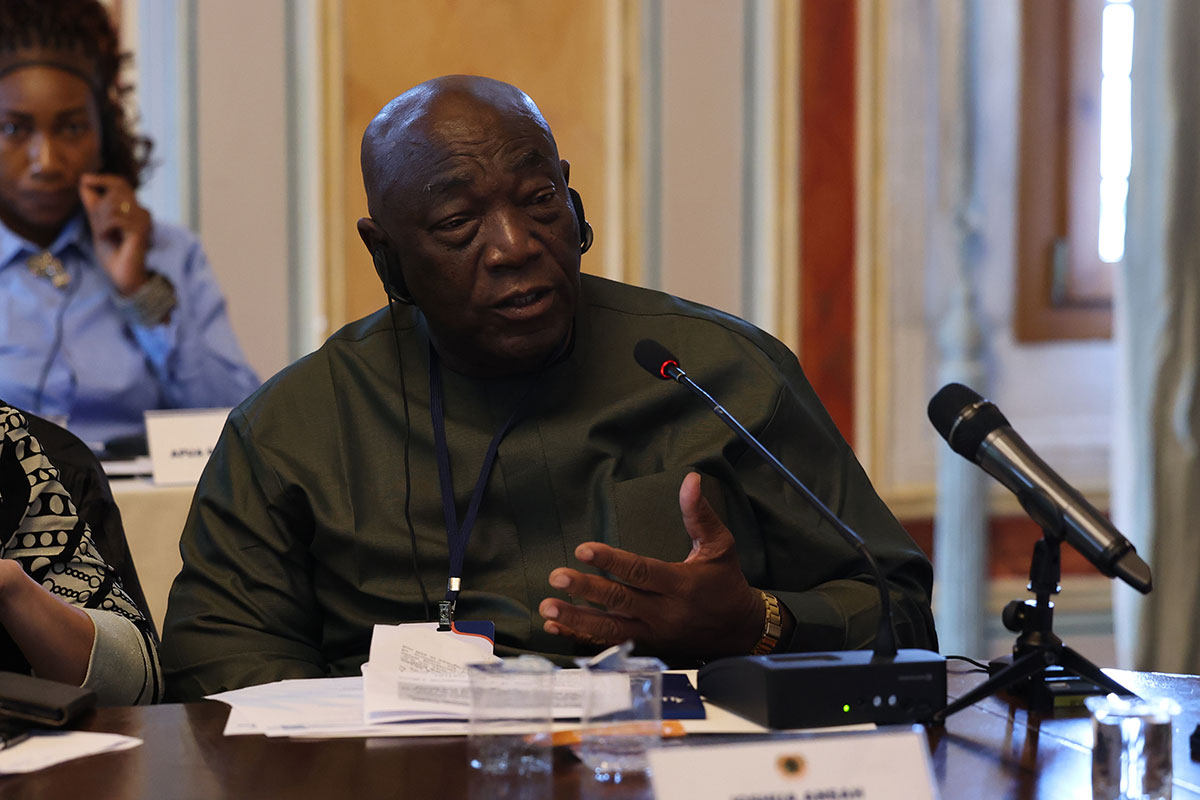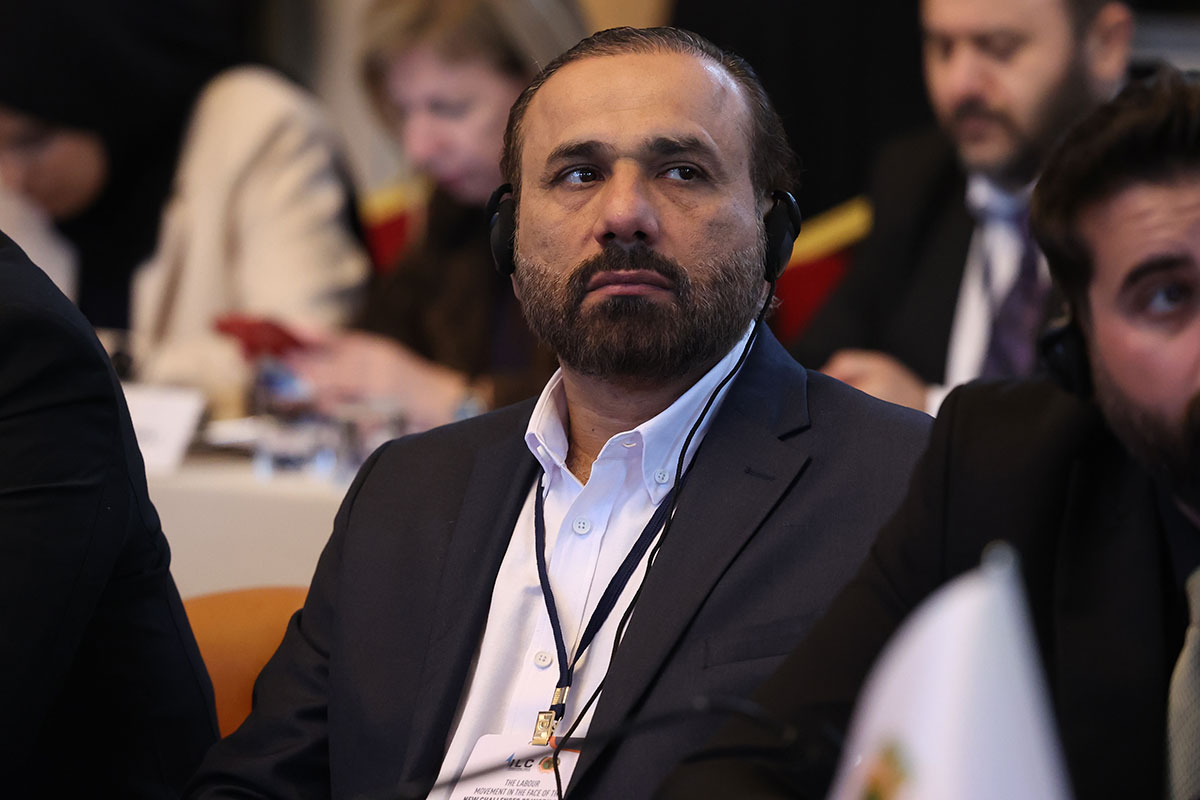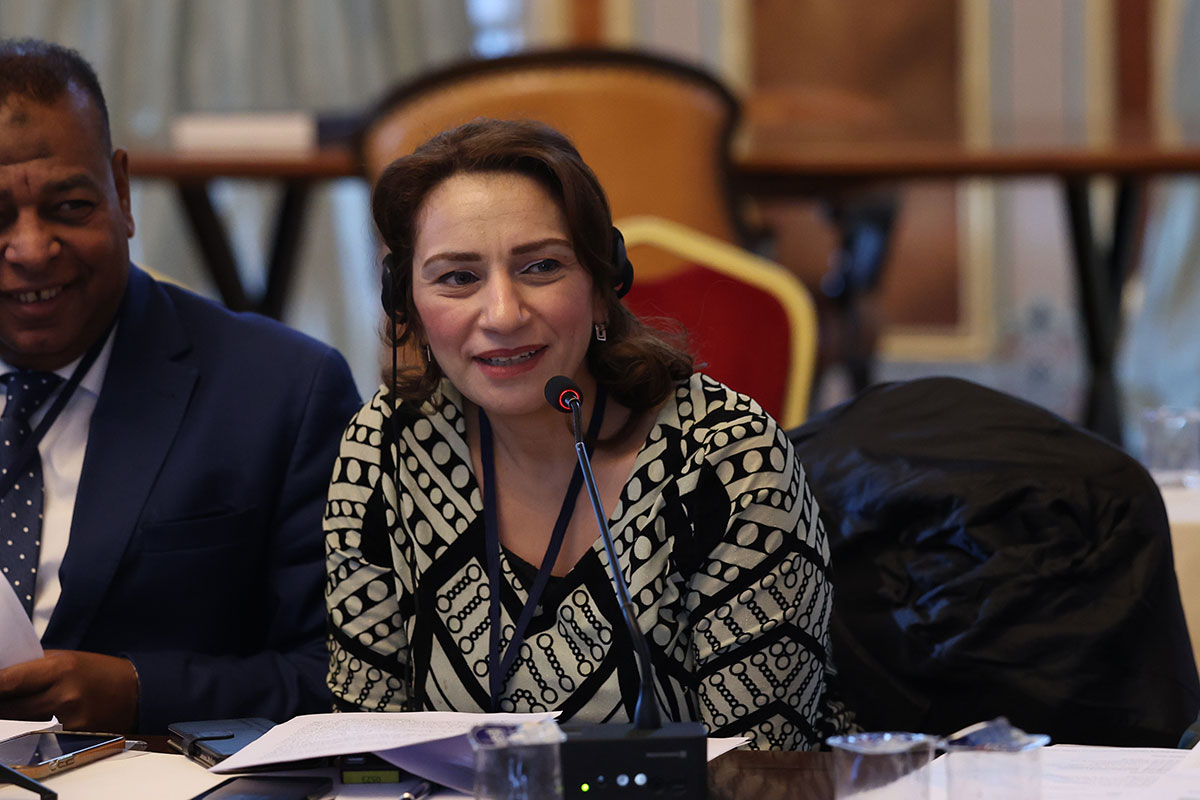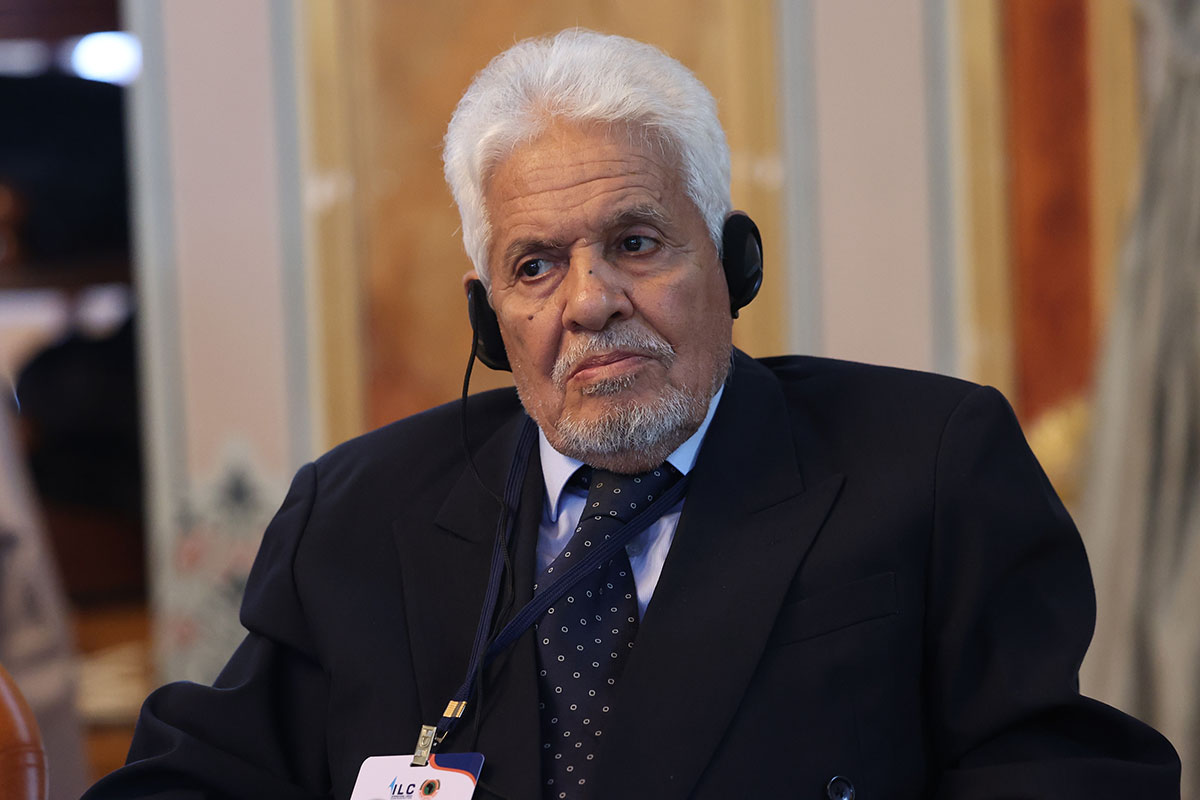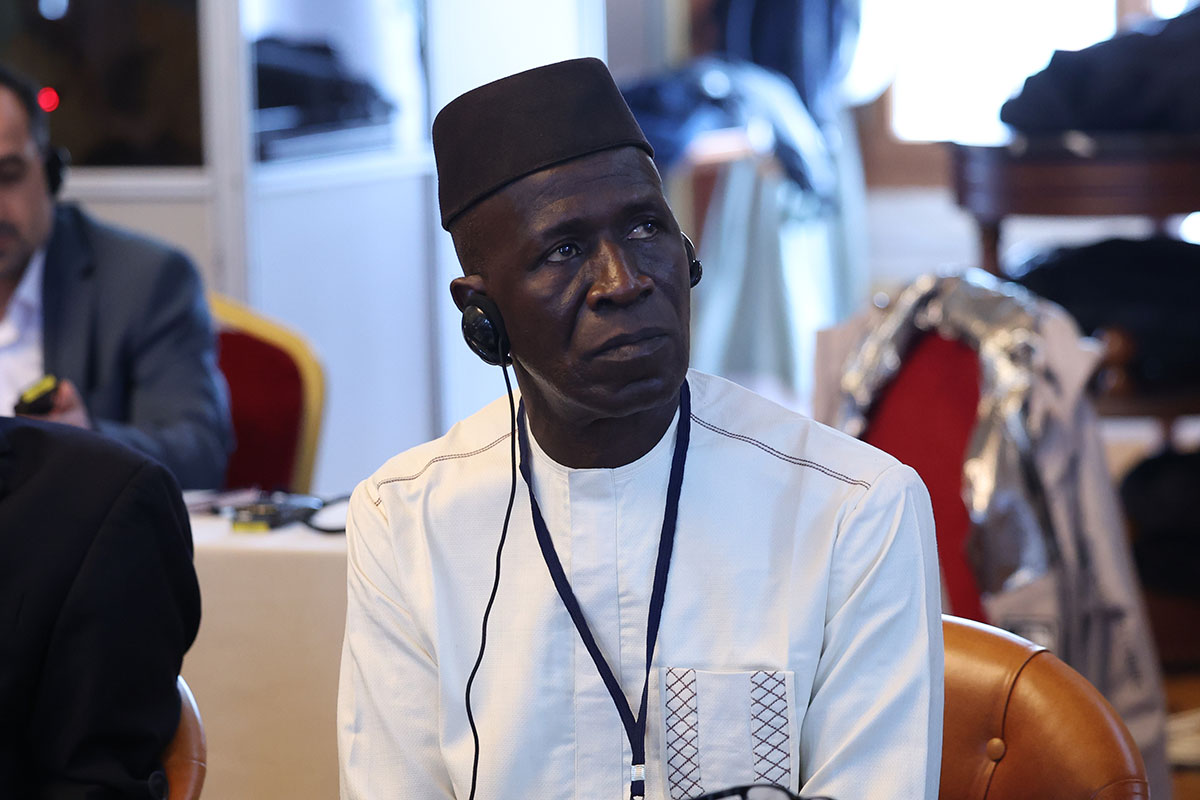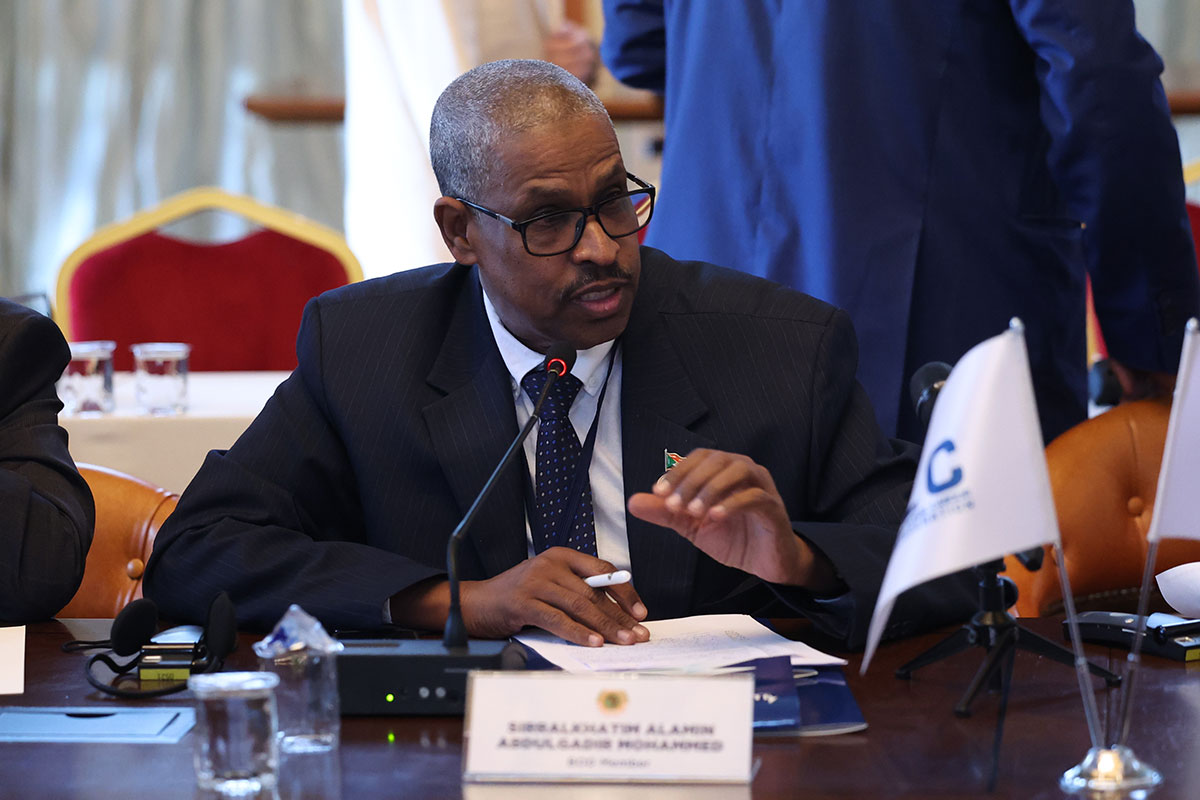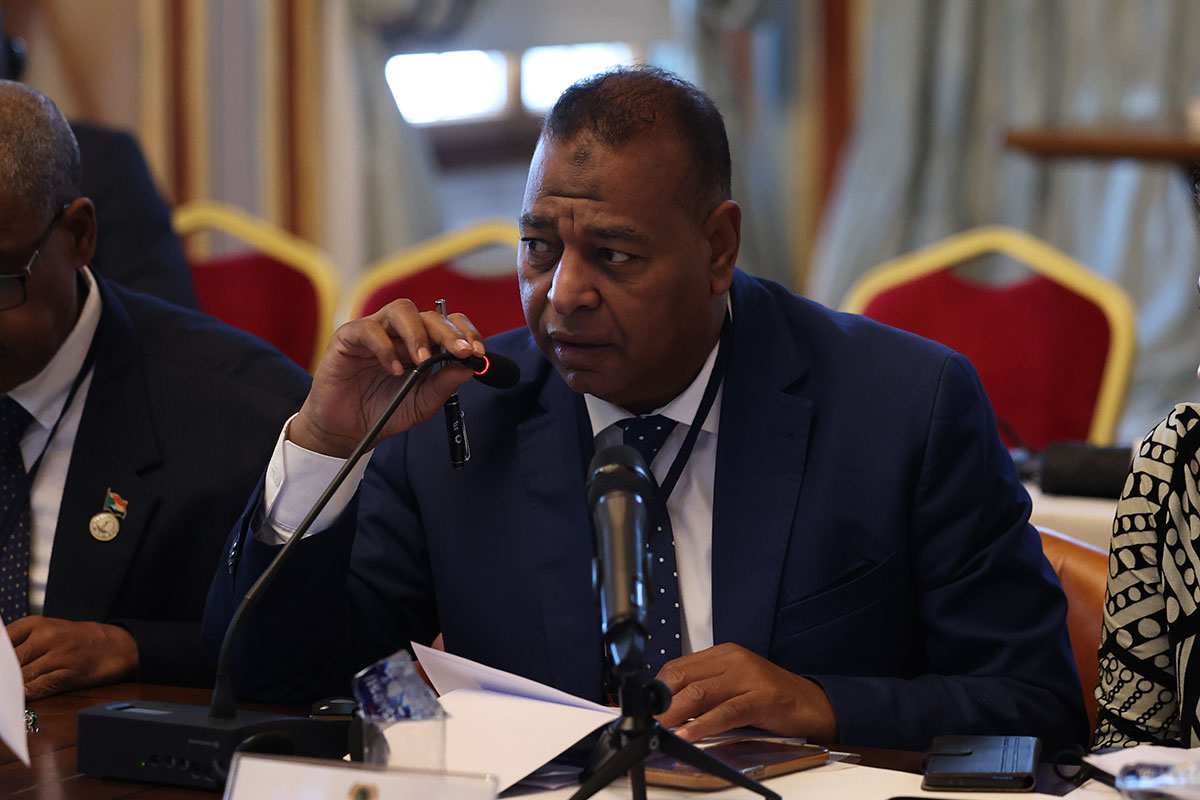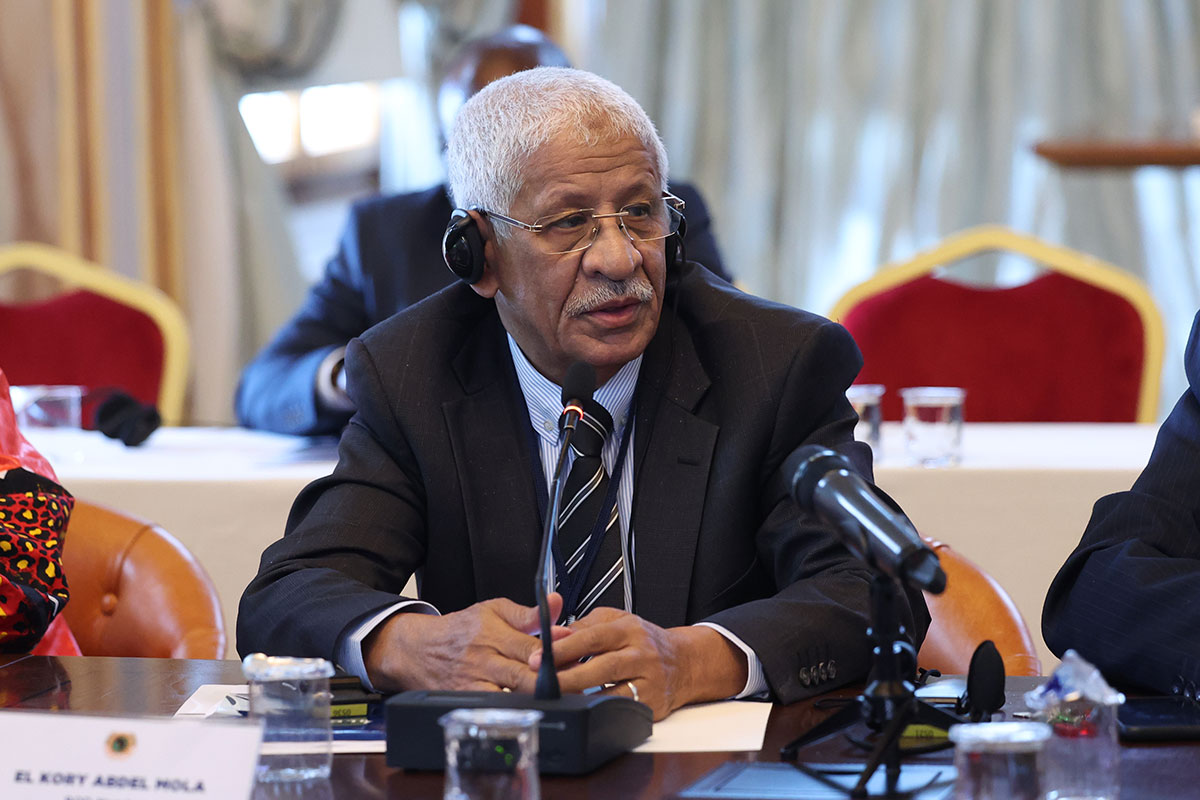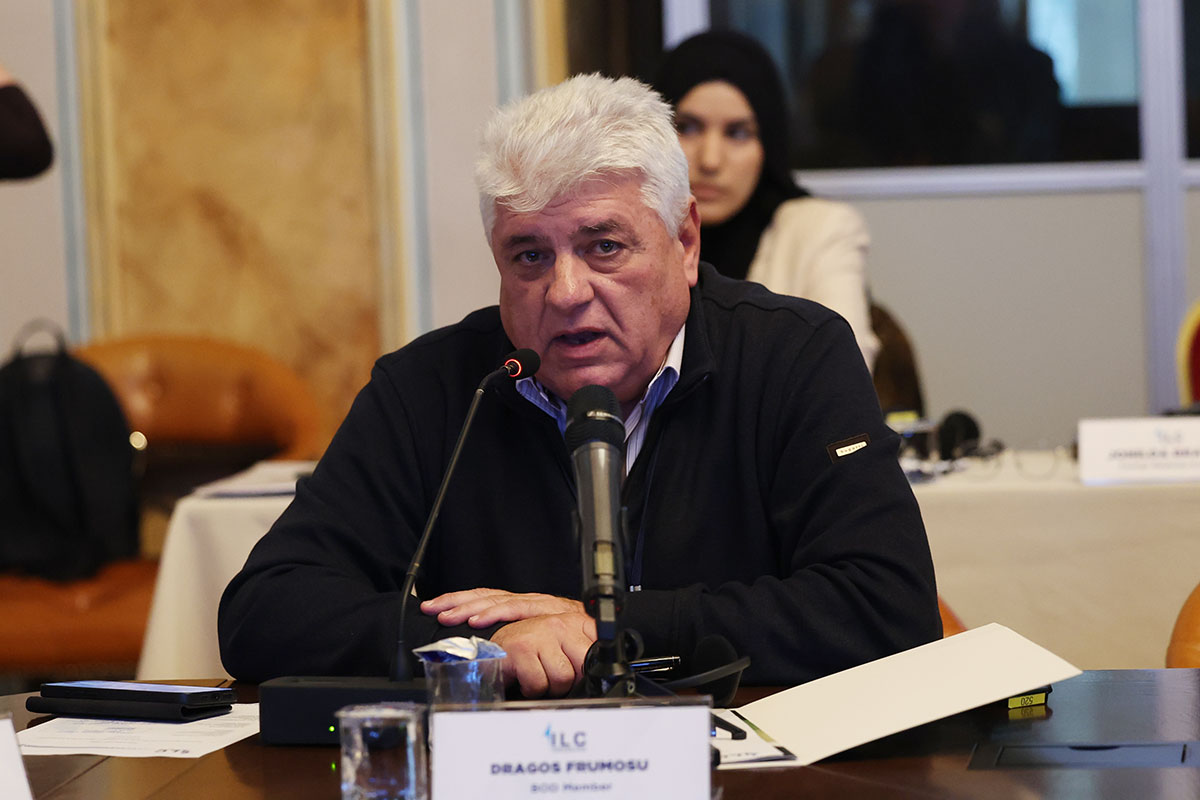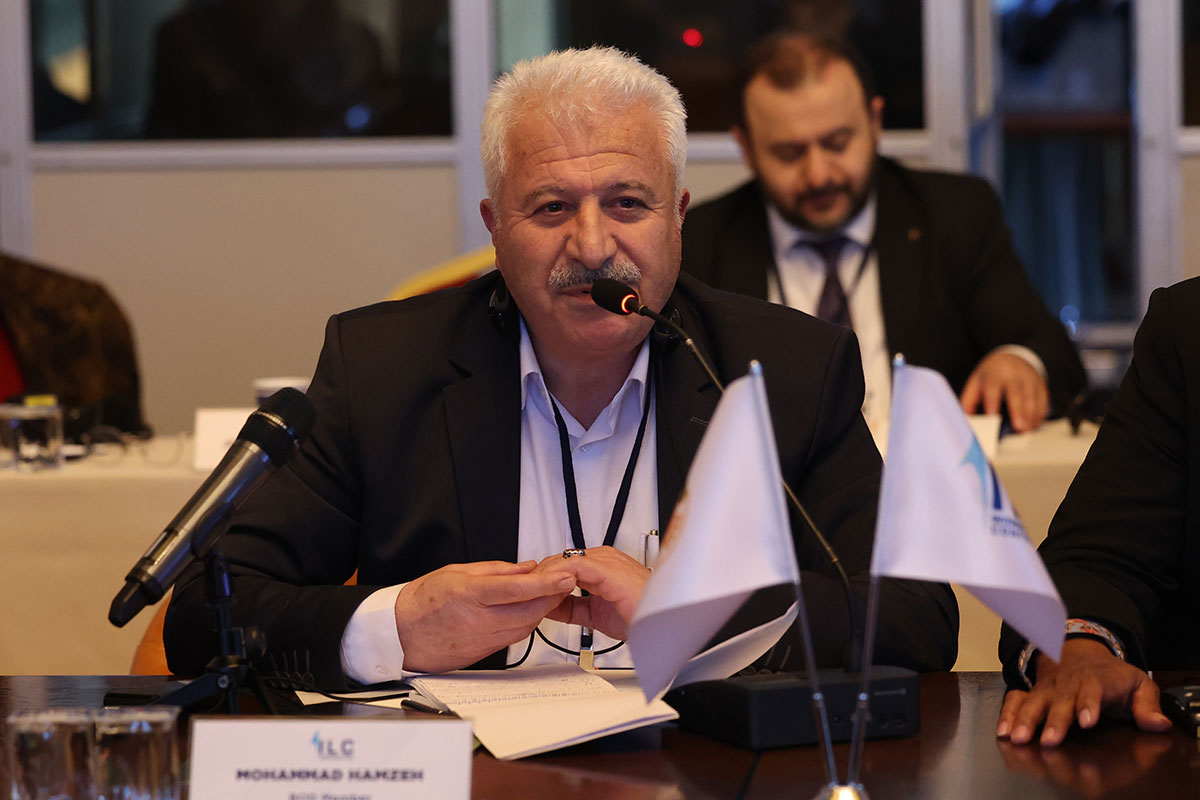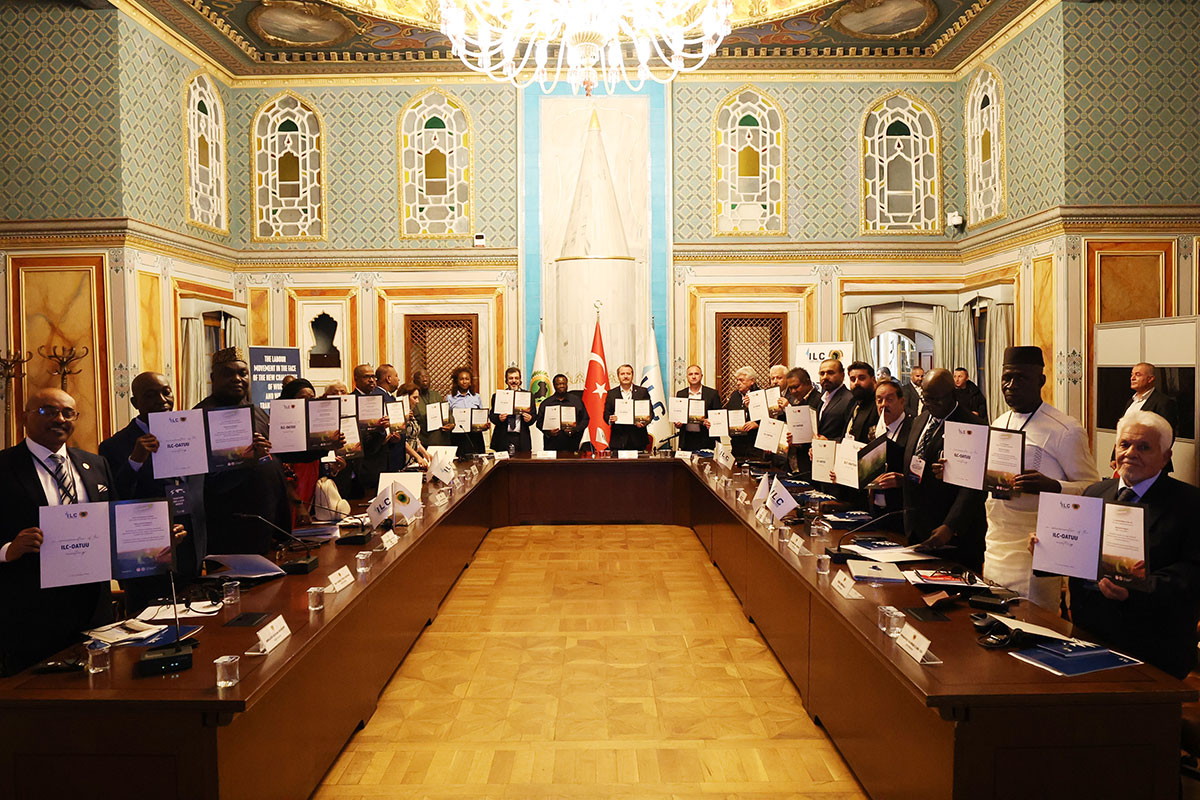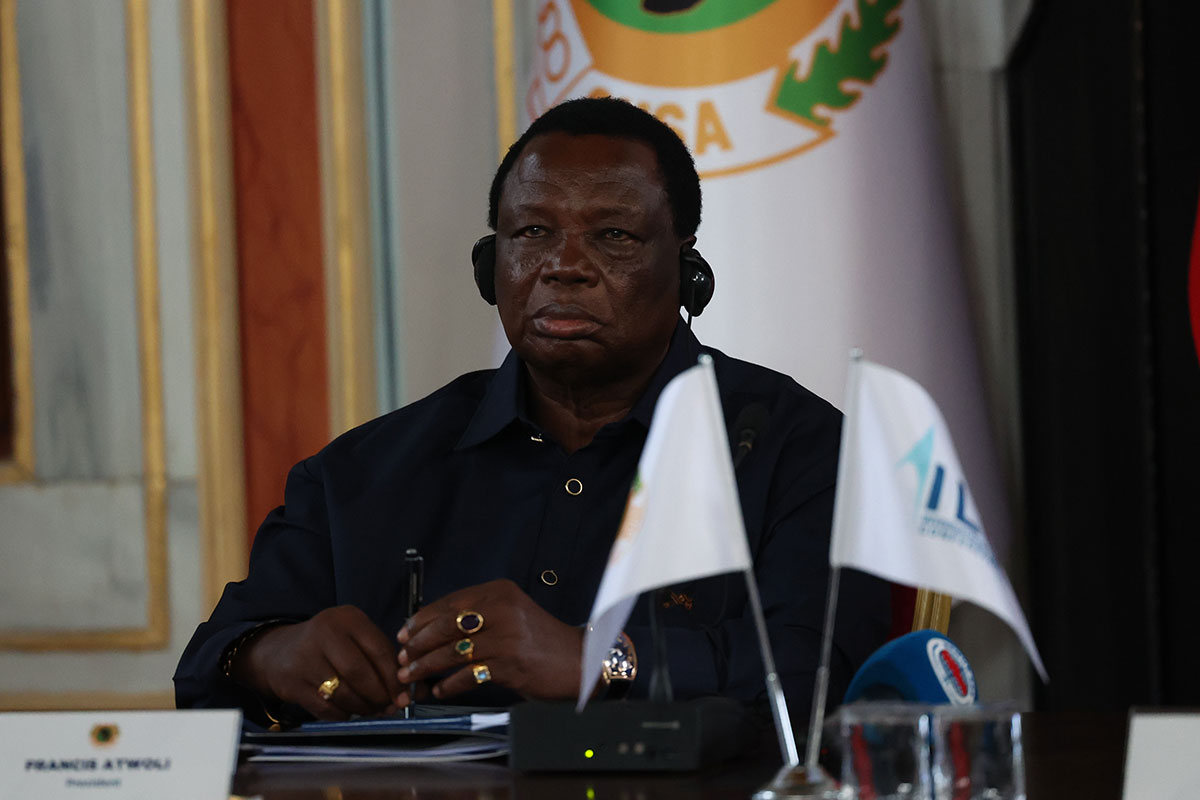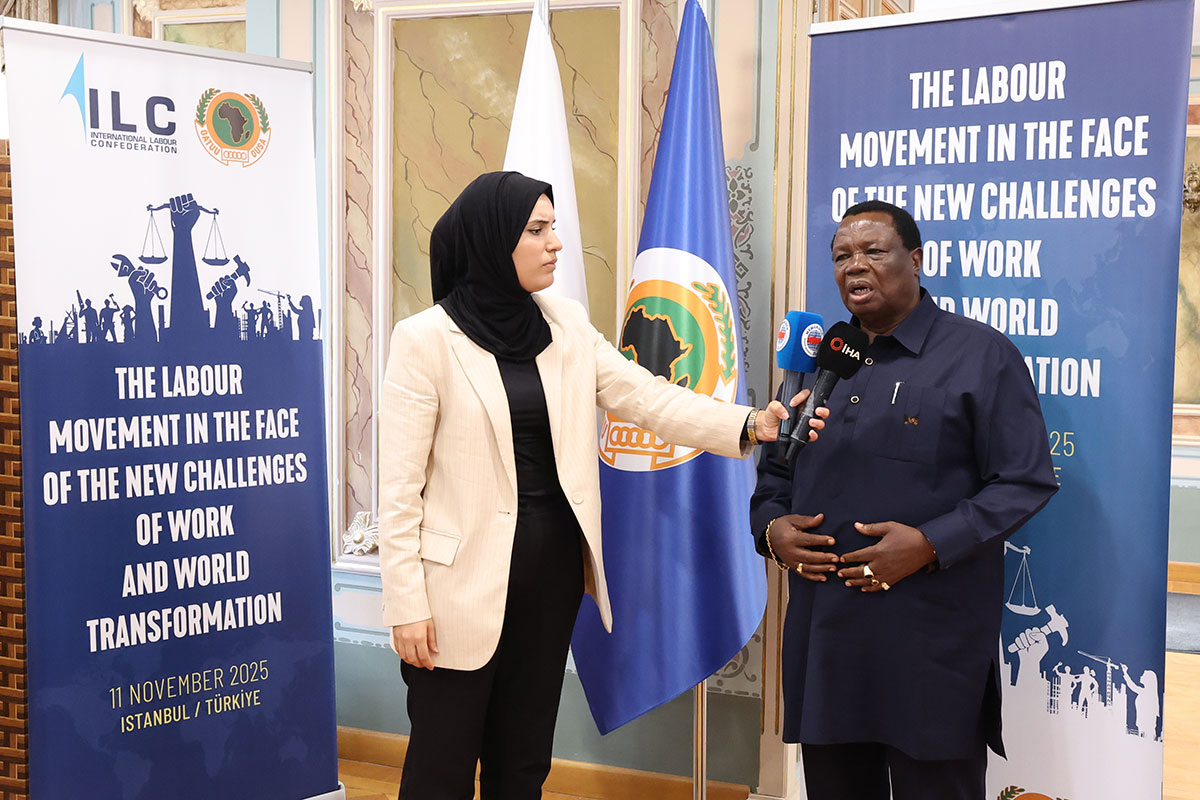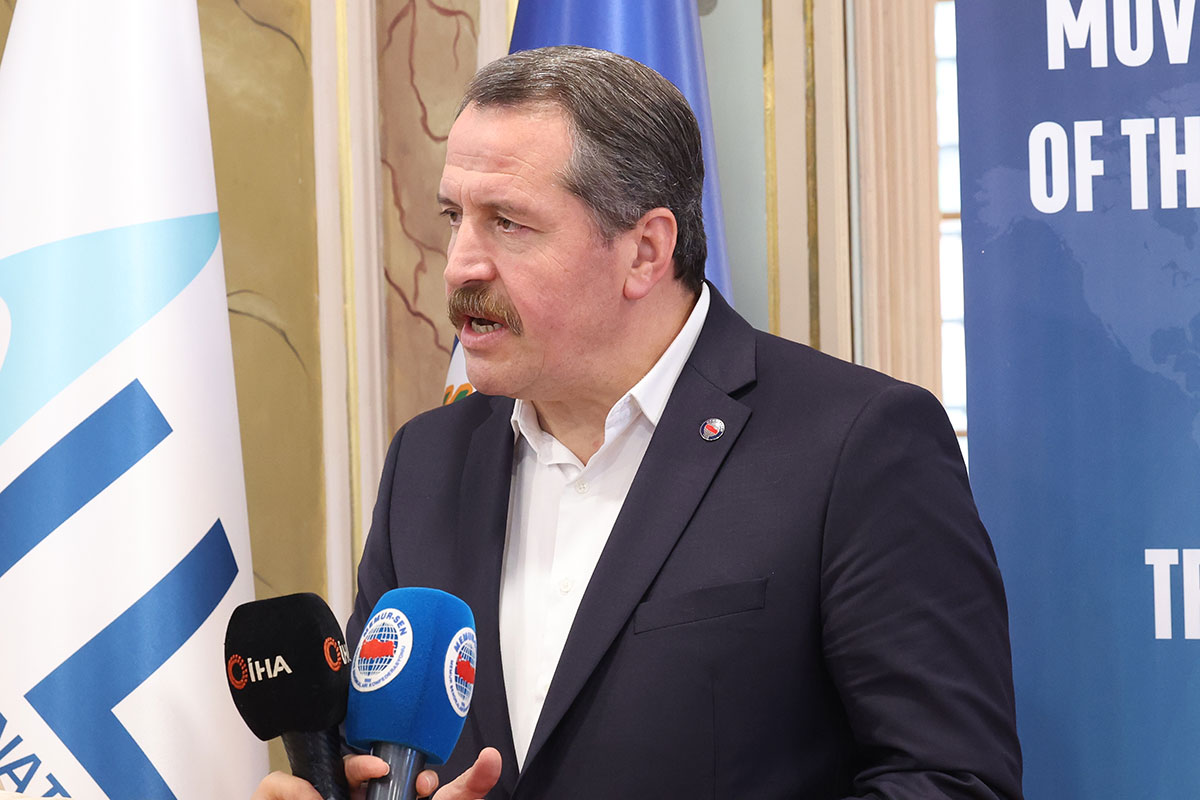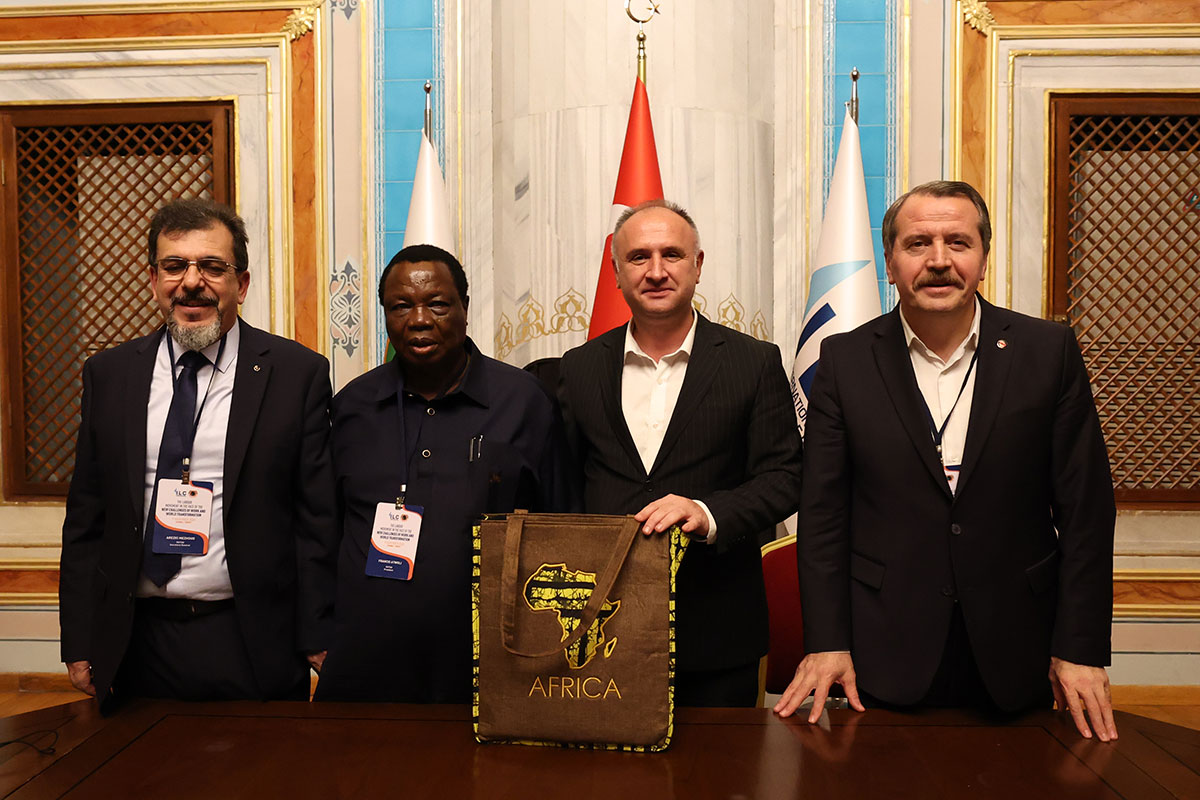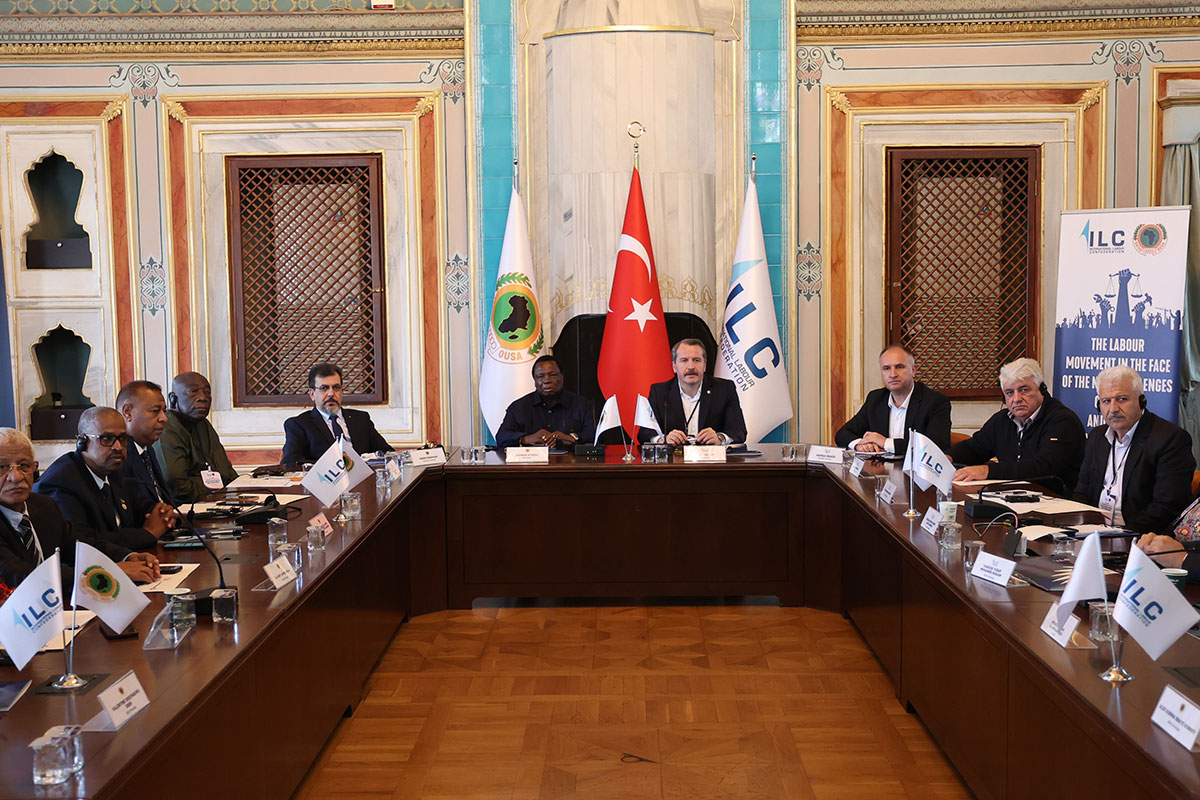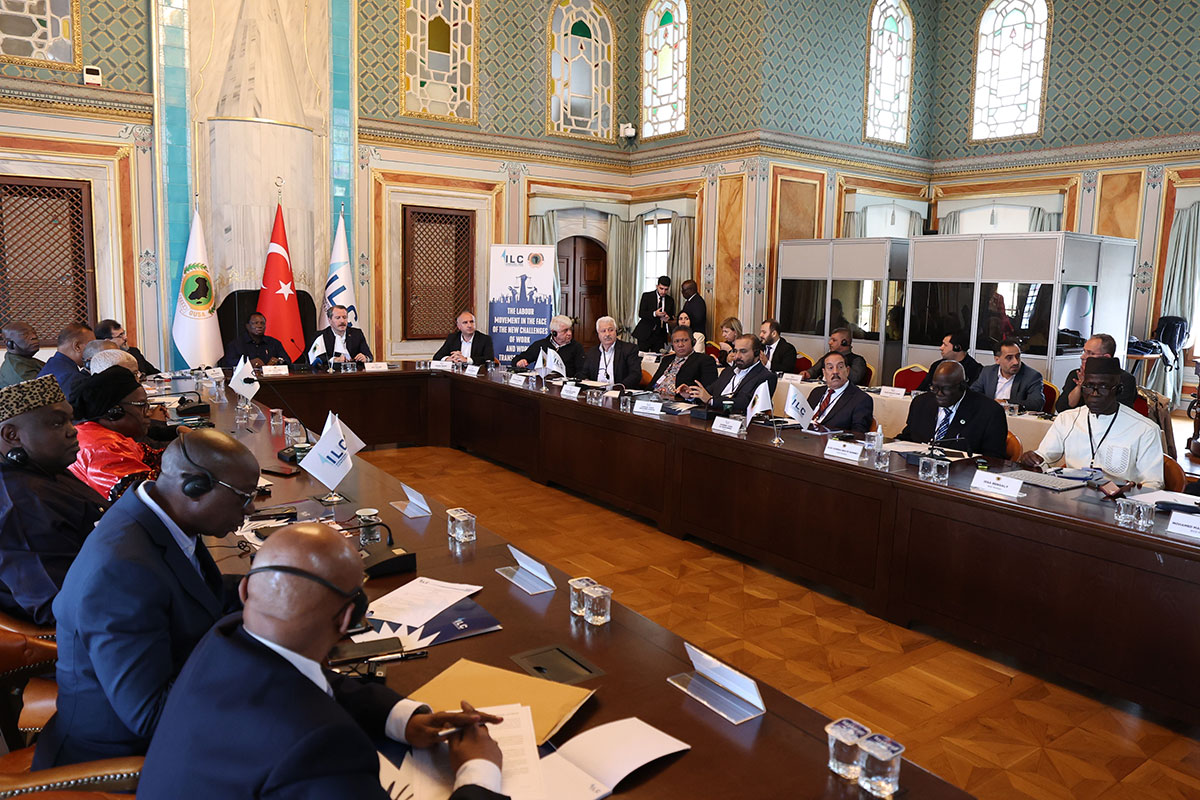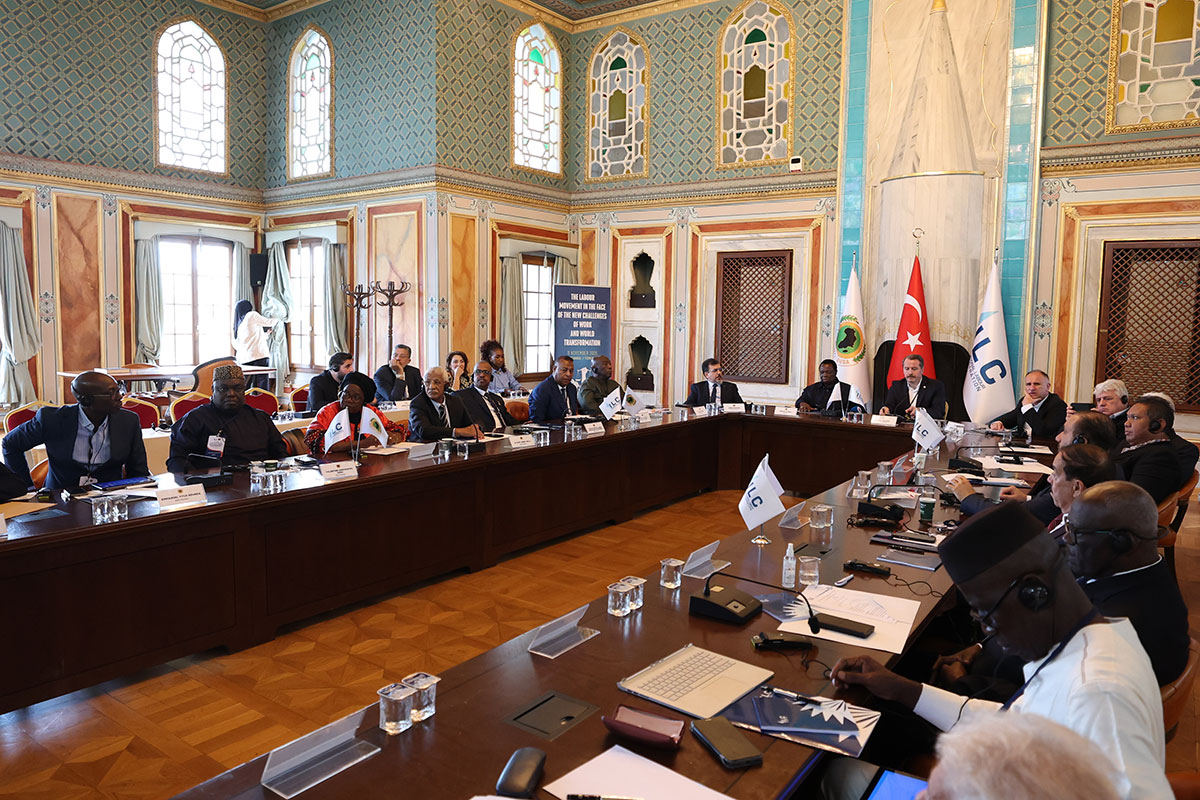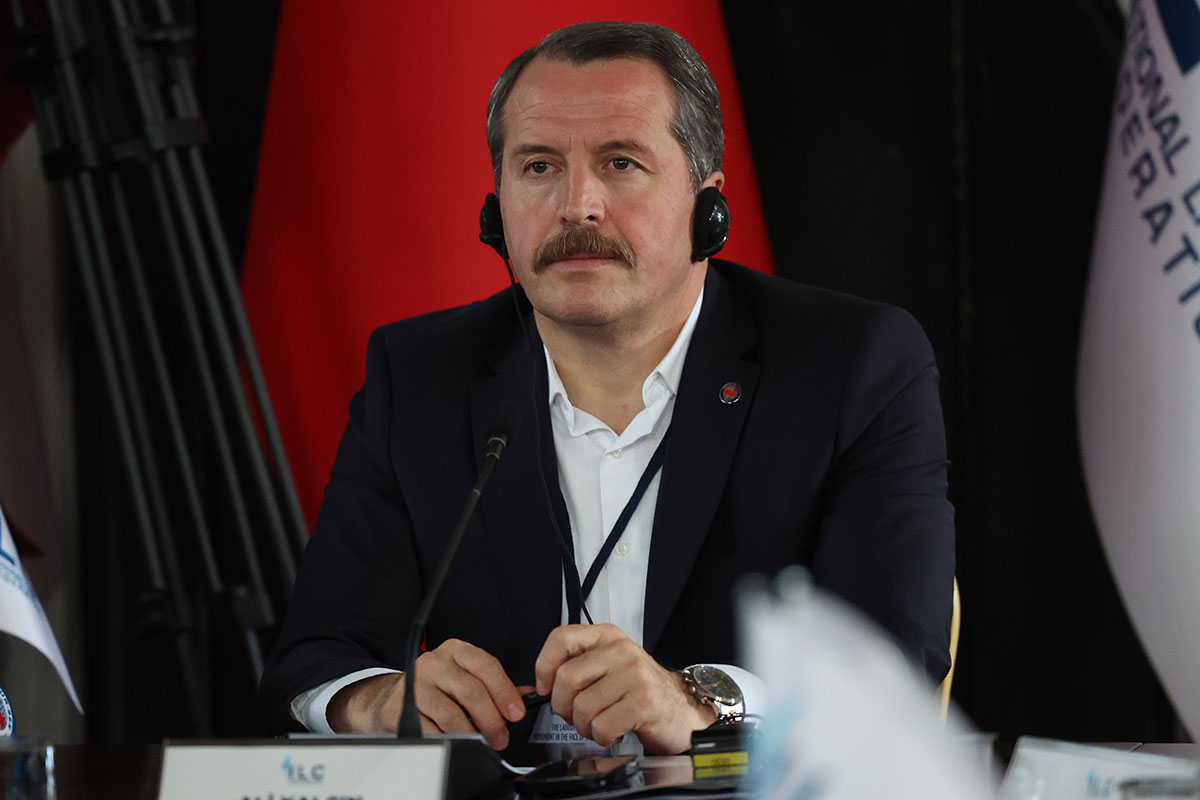News / Blog
ILC and OATUU Discuss the Future of the Global Labour Movement in Istanbul
The meeting brought together ILC President Ali Yalçın, ILC Secretary General Hamza Öksüz, OATUU President and ILO Governing Body Member Dr. Francis Atwoli, and OATUU Secretary General Arezki Mezhoud, along with board members from both organizations and representatives from numerous national trade union confederations.
Participants included Isa Bengaly, Mohammad Hamzeh, Maria Fernanda Carvalho Francisco, Yaqoob Yusuf Mohamed Husain, El Kory Abdel Mola, Angore Amani Rodgers, Soeharjono Kadeni Kartodinomo, Sirralkhatim Alamin Abdulgadir Mohammed, Dragos Frumosu, Eid Abdelfattah, Caroline Samir Henin, Valentine Okechukwu Udeh, Emmanuel Titus Nzunda, Ibrahim Abrar Ibrahim, Joshua Ansah, Alex Kobina Braye Bonney, and Mohamed Mabruk S. Abu Zid.
The meeting aimed to develop joint strategies for the global labour movement in response to pressing challenges such as digital transformation, artificial intelligence, platform economies, and global inequalities.
Key Themes Highlighted in the Sessions:
• The labour movement’s collective struggle against global inequalities
• The future of work and humanity
• The impact of technological transformation, AI, and digitalization on labour
• Emerging socioeconomic changes in the world economy
• Strengthening international trade union solidarity
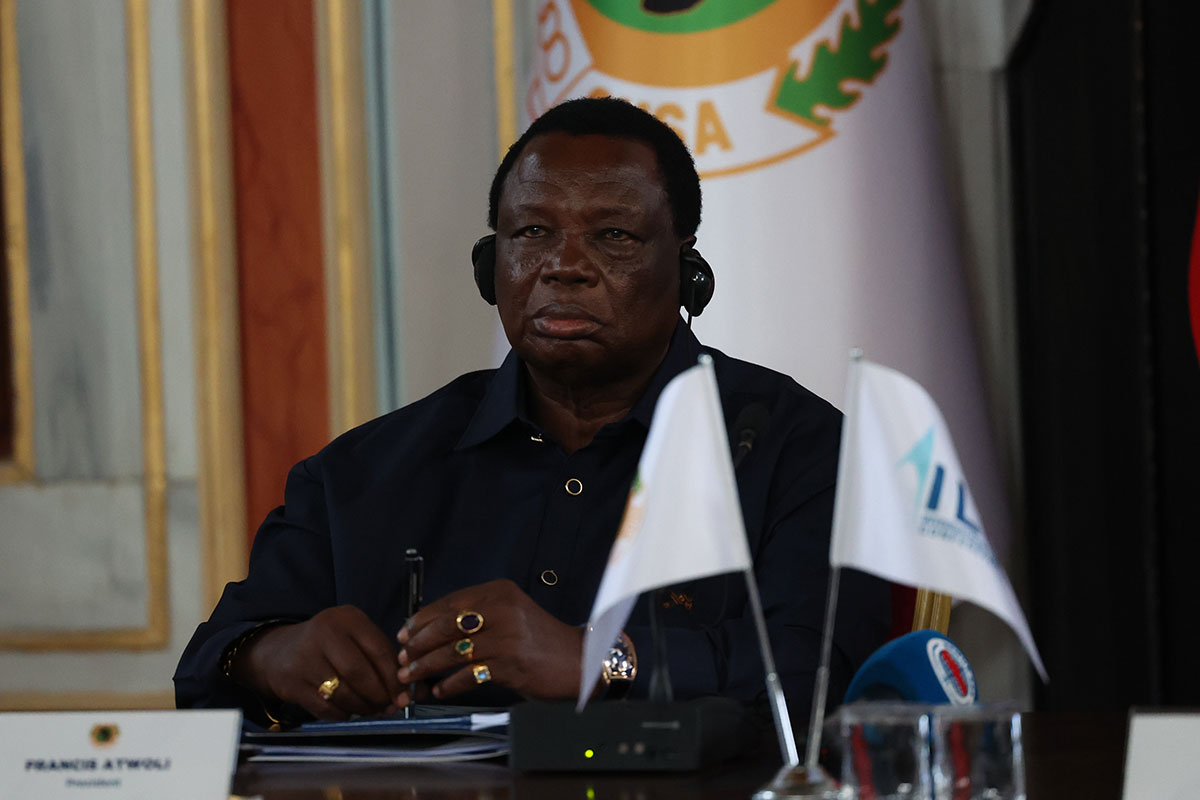
Dr. Francis Atwoli: “The Global Labour Movement Must Enter a New Era of Solidarity”
OATUU President and ILO Governing Body Member Dr. Francis Atwoli emphasized that the sweeping transformations of our time present both major opportunities and serious risks for the global labour movement:
“We live in an age of rapid and far-reaching transformations — the rise of digital technologies, artificial intelligence, and automation; the climate crisis and green transition; economic inequalities and shifting employment patterns.”
Highlighting the destructive effects of digitalization, global inequality, and economic crises on labour, Atwoli warned that even institutions such as the International Labour Organization (ILO) are under pressure from deregulation and precarious employment trends:
“Even the ILO, which provides a framework for labour standards and workers’ protection, is being targeted by those pushing deregulation and precarious work.”
Drawing attention to the vulnerable conditions of workers in the Global South, Atwoli urged the labour movement to rethink its strategies and structures:
“The labour movement must rethink its strategies, adapt its structures, and renew its commitment to social justice, democracy, and a life of dignity for all.”
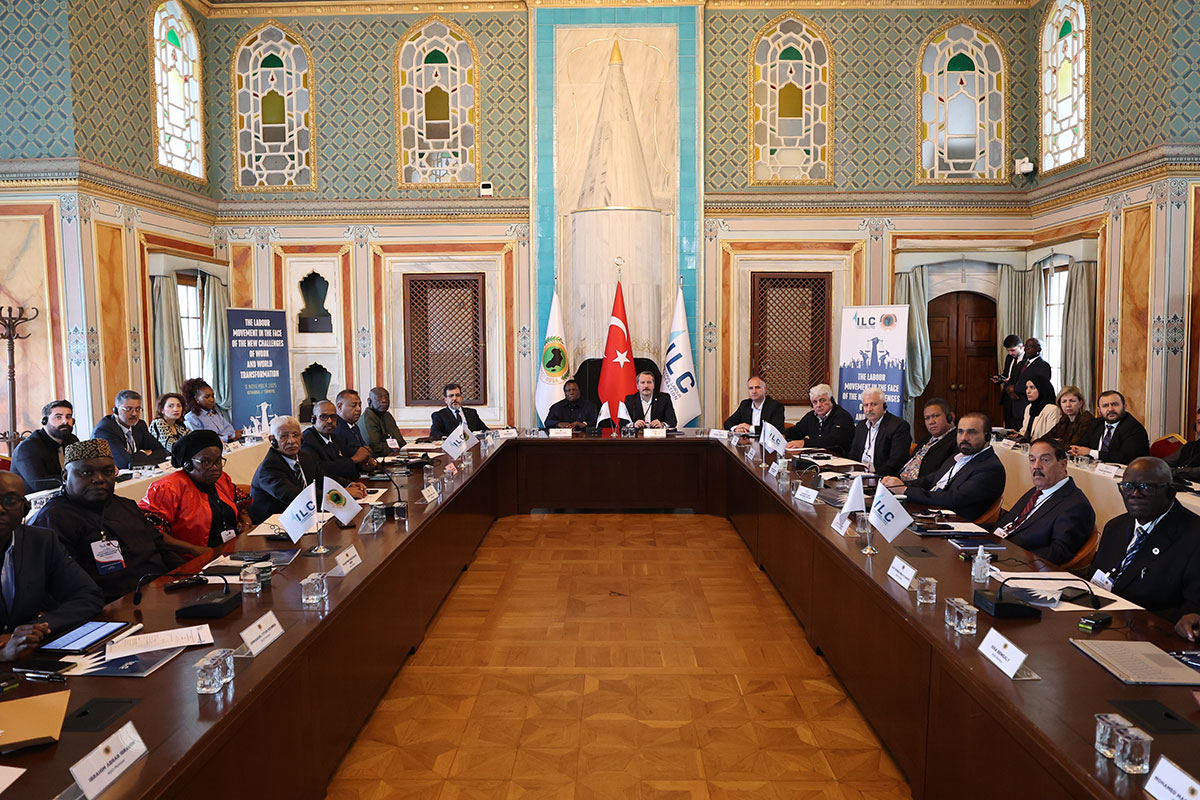
He stressed that global solidarity and cooperation among trade unions are the key to rebuilding the future:
“Solidarity, cooperation, and mutual learning among unions across continents and regions are the foundations of a more inclusive and resilient future.”
Atwoli also referred to the humanitarian catastrophes in Gaza and Sudan, describing them as tragic indicators of a world losing its moral compass:
“What is happening in Gaza and Palestine is a stark reminder of a world where power has replaced law, and human values are being eroded.”
He concluded with a powerful call:
“Let us act for a more humane world — one where peace, freedom, justice, and prosperity prevail for all. We must turn these challenges into an opportunity to build a fairer, more inclusive, and resilient future for workers everywhere.”
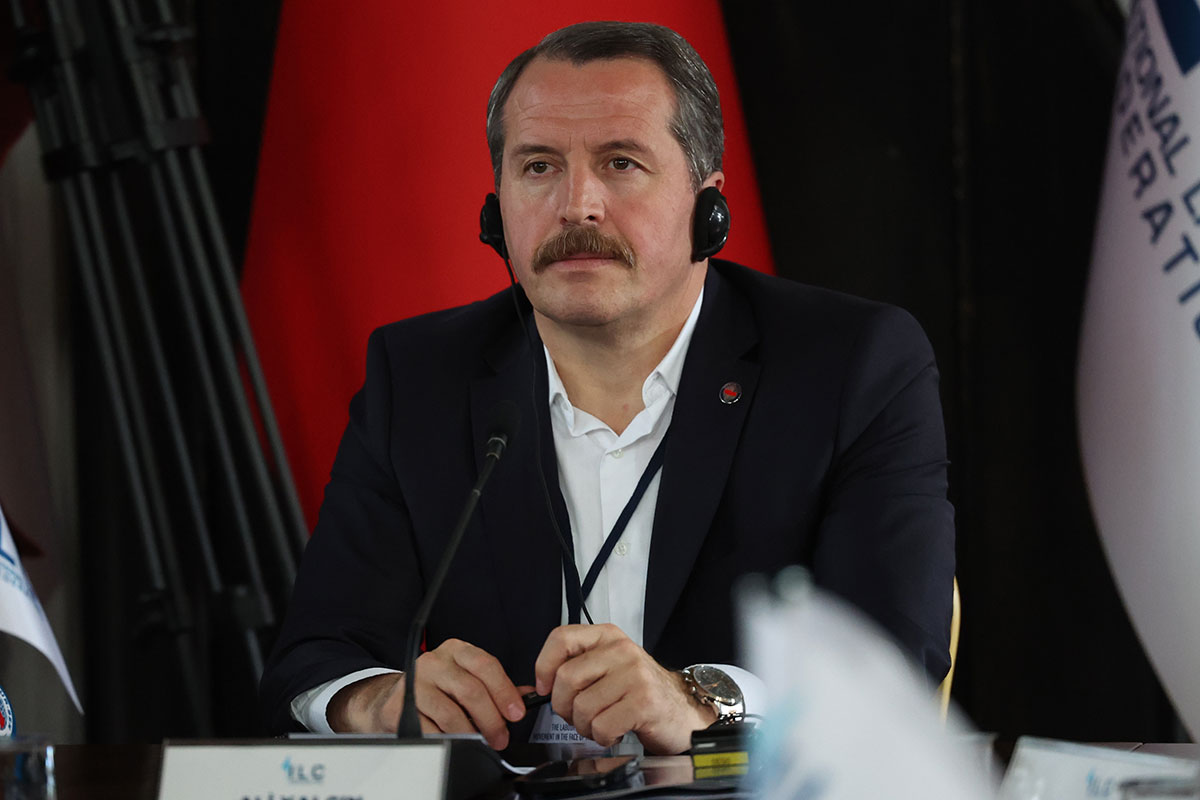
Ali Yalçın: “We Are Fighting for a Just Transition and Human Dignity”
ILC President Ali Yalçın underlined that the world has entered a new era marked by digitalization, the climate crisis, and structural shifts in production models, creating both opportunities and profound inequalities:
“What we face today is not merely an economic but also a moral crisis. The neoliberal order has turned labour from a human value into a commodity.”
Yalçın reminded participants that the ILC was founded with the motto “Together for a Just World,” assuming the responsibility to be the voice of the unrepresented:
“We are not passive witnesses to this order — we are active agents of a just transformation. Our aim is not to divide labour, but to unite it.”
He warned that digitalization, automation, and the green transition could create new forms of inequality if not guided by labour-centered policies, emphasizing the principle of a “just transition”:
“We must not allow the costs of these transitions to be borne by workers. A just transition is only possible through social dialogue, planning, and international solidarity.”
Yalçın also criticized the growing loss of trust in international institutions, which prioritize systemic sustainability over the real problems of workers.
Addressing the humanitarian catastrophe in Gaza, he reaffirmed that the labour movement bears not only an economic but also a human responsibility. Referring to Sudan, he described the crisis as a reminder that colonial legacies and external interventions remain alive.
He concluded with a strong message:
“Our solidarity is not confined by union borders but defined by the principles of justice, peace, and human dignity. We are united, we are strong, and we stand for justice.”
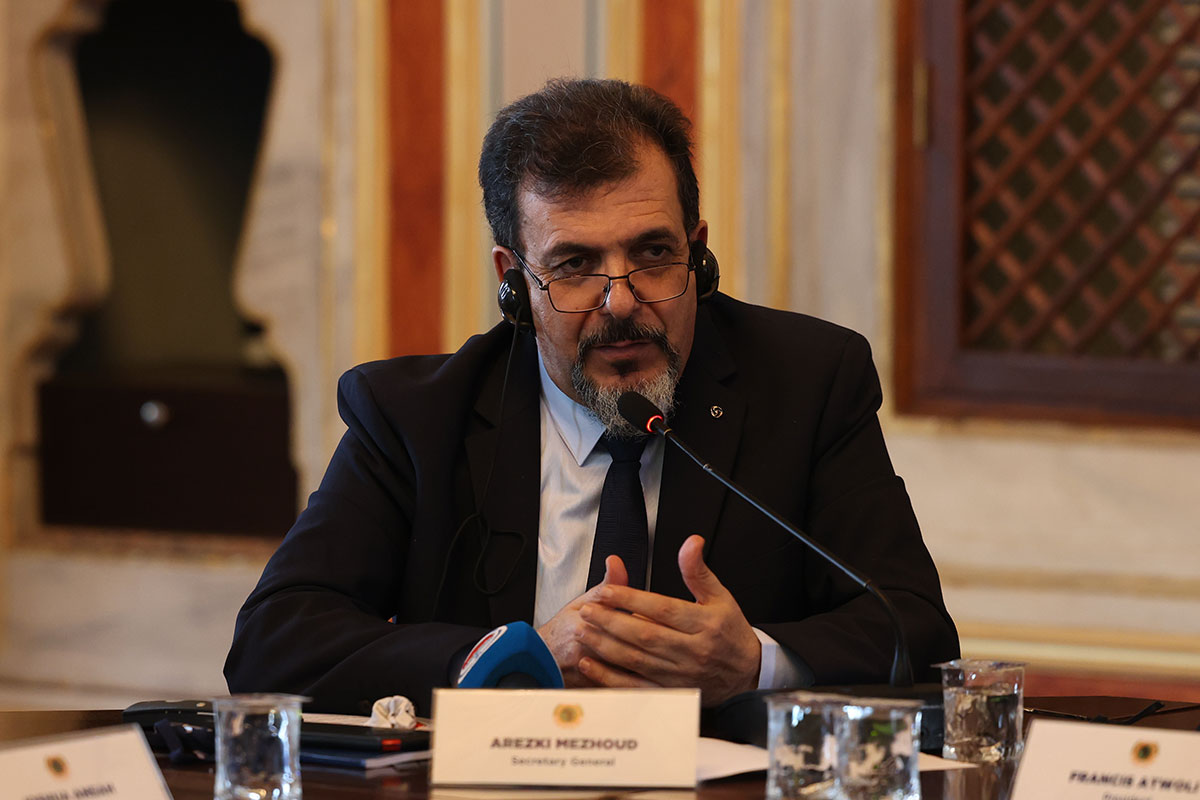
Arezki Mezhoud: “Solidarity Is the Guarantee of Our Common Future”
OATUU Secretary General Arezki Mezhoud called for the global labour movement to be rebuilt on the foundation of solidarity:
“Today, workers’ problems know no borders; therefore, the solution lies in solidarity. Solidarity is not just a value — it is the guarantee of our shared future.”
He emphasized that trade unions must not only defend rights but also act as pioneers of social justice, especially in the face of digital transformation, climate change, and deepening economic inequalities:
“The labour movement must play a leading role in building an economy centered on humanity and dignity. Together, we will work for a fairer, more humane, and sustainable future.”
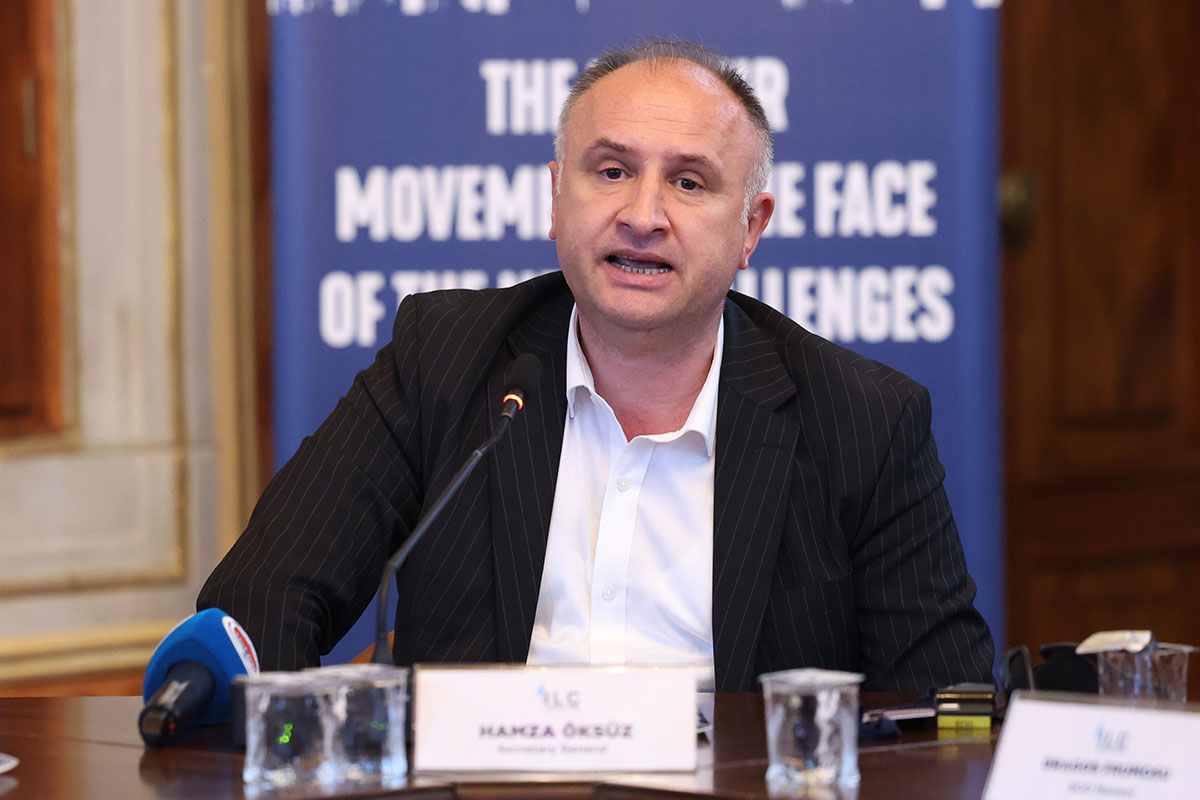
Hamza Öksüz: “We Must Strengthen Cooperation to Protect Labour in the New Era”
In his opening remarks, ILC Secretary General Hamza Öksüz stated that the meeting holds historic importance for global labour solidarity, drawing attention to the new inequalities created by digitalization:
“The era we live in moves faster than time itself. As unions, we are not yet fully prepared for this transformation. That is why we must strengthen international cooperation more than ever.”
He noted that the digital era offers opportunities but also brings deep social injustices:
“The absence of justice in income and opportunity also manifests itself in digital access. We cannot allow digitalization to exclude human labour.”
Commenting on the tragedy in Gaza, he said:
“In the 21st century, when bombs are not enough, hunger is used as a weapon — Israel is committing genocide before the eyes of the world. This is not only a test for Palestine but for the future of humanity itself.”
Öksüz warned that wars devastate not only human lives but also production, supply chains, and labour markets, and called for legal protection mechanisms in the digital economy:
“We must rebuild legal safeguards against the challenges of the digitalized world of work. Joint union action and legal solidarity are essential for the new era.”
He concluded by underlining the rising role of civil society:
“Governments may remain silent, but the people never do. The global outcry of civil society has isolated Israel. We must amplify that same solidarity for the future of labour.”
A Joint Call for Global Labour Solidarity
Throughout the sessions, participants emphasized that digital transformation, AI, and automation are fundamentally reshaping production and labour relations and warned that if mismanaged, these trends could trigger a new wave of global inequality.
Delegates from multiple countries called for the protection of workers, job security, and the strengthening of social dialogue mechanisms as part of a just transition.
Discussions highlighted how climate change, regional wars, and economic crises directly impact working life, asserting that global peace, justice, and decent living conditions can only be achieved through strong labour solidarity.
Speakers drew attention to the humanitarian crises in Gaza and Sudan, stressing that the labour movement must not remain silent:
“The voice of labour must rise not only in workplaces but wherever war, poverty, and injustice prevail.”
The meeting concluded with the unanimous adoption of the Final Declaration, affirming that the joint initiatives led by ILC and OATUU will lay the foundation for a fairer, more solidaristic, and dignity-based world of work.
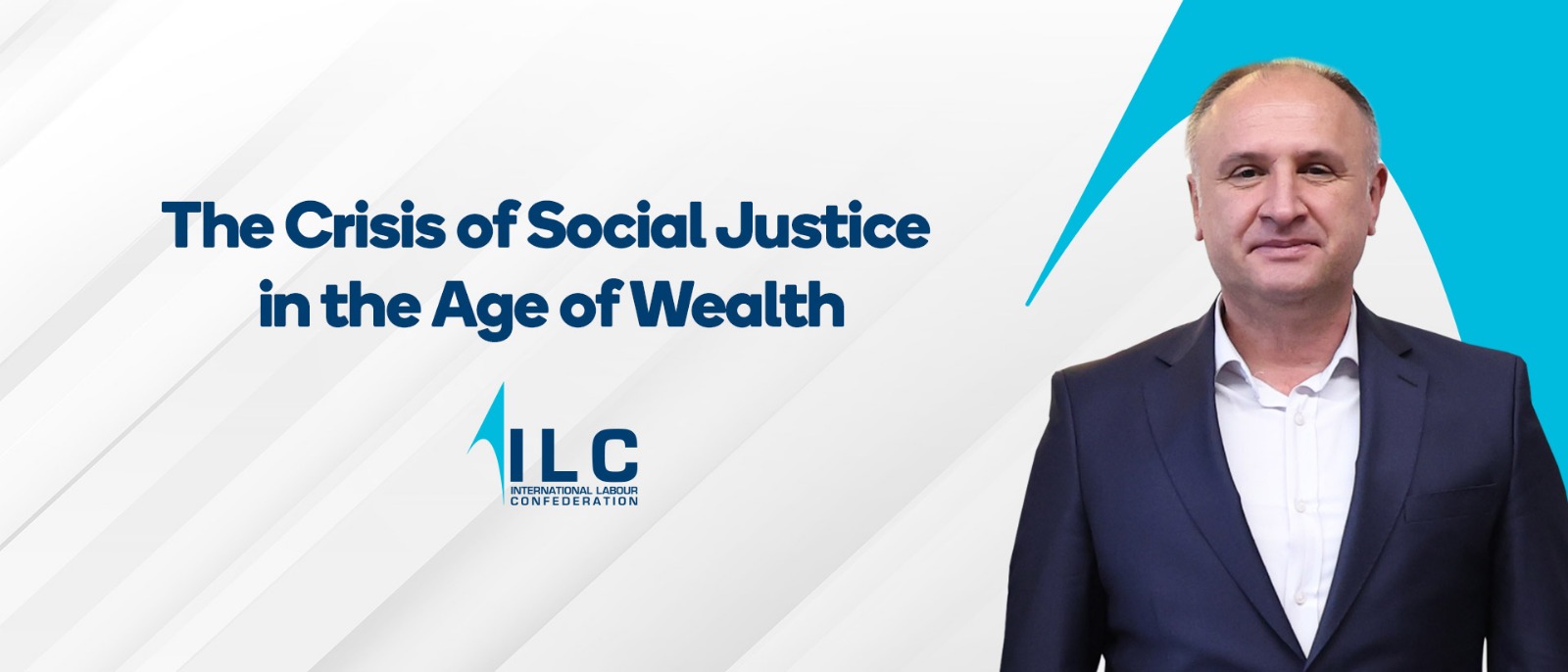
The Crisis of Social Justice in an Age of Wealth
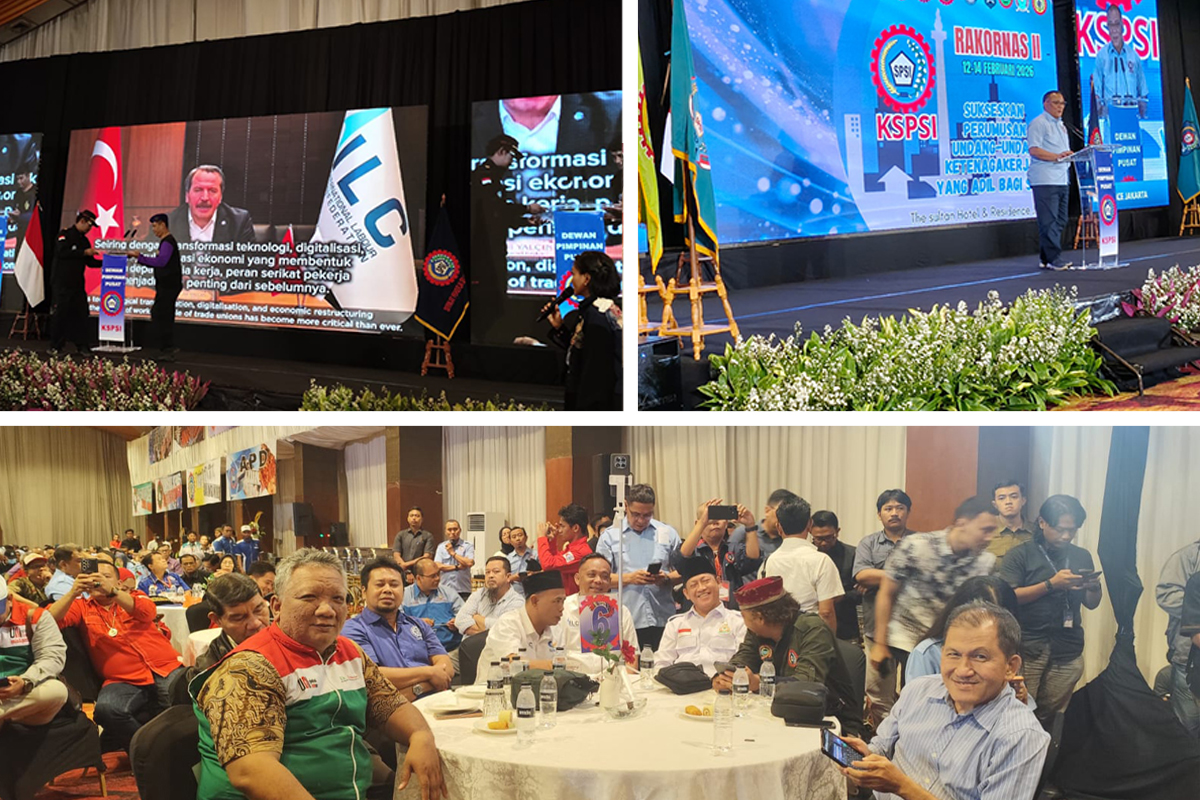
Indonesia: KSPSI National Coordination Meeting
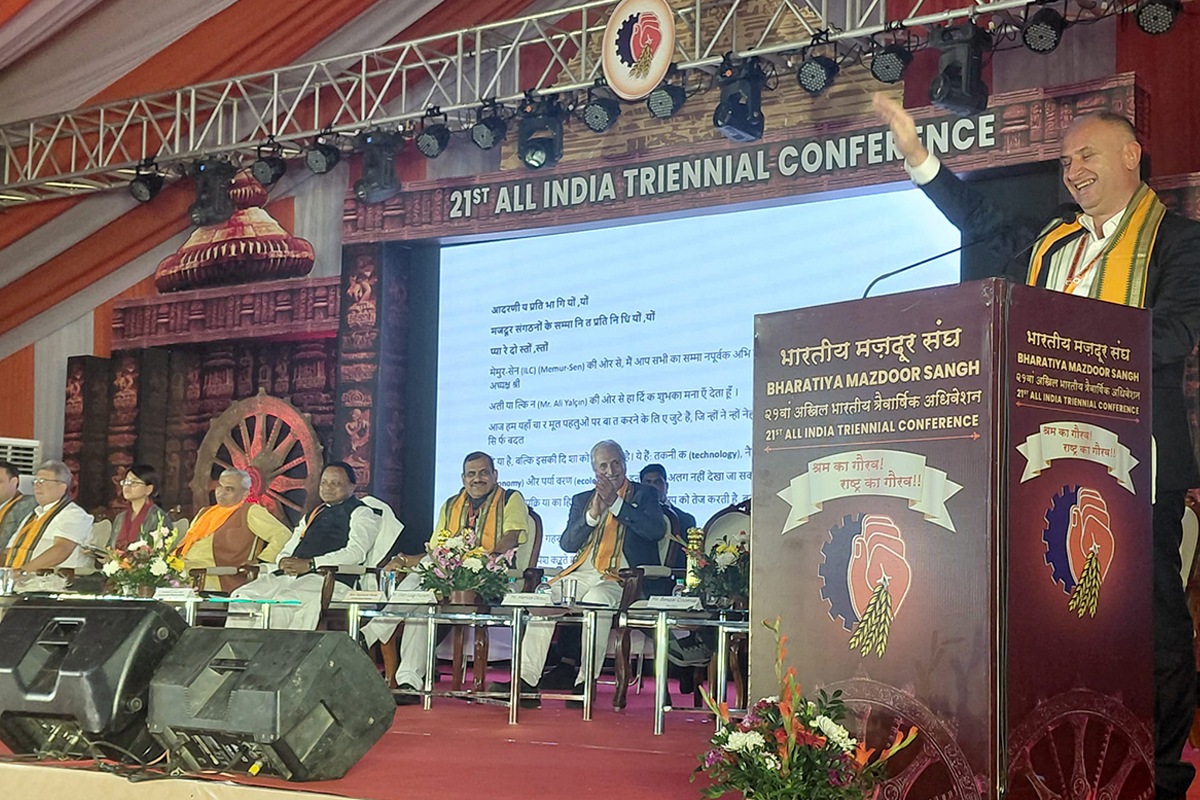
Hamza Öksüz Calls for Trade Unions to Act as Foundational Actors in the Global Transformation of Work at BMS International Conference
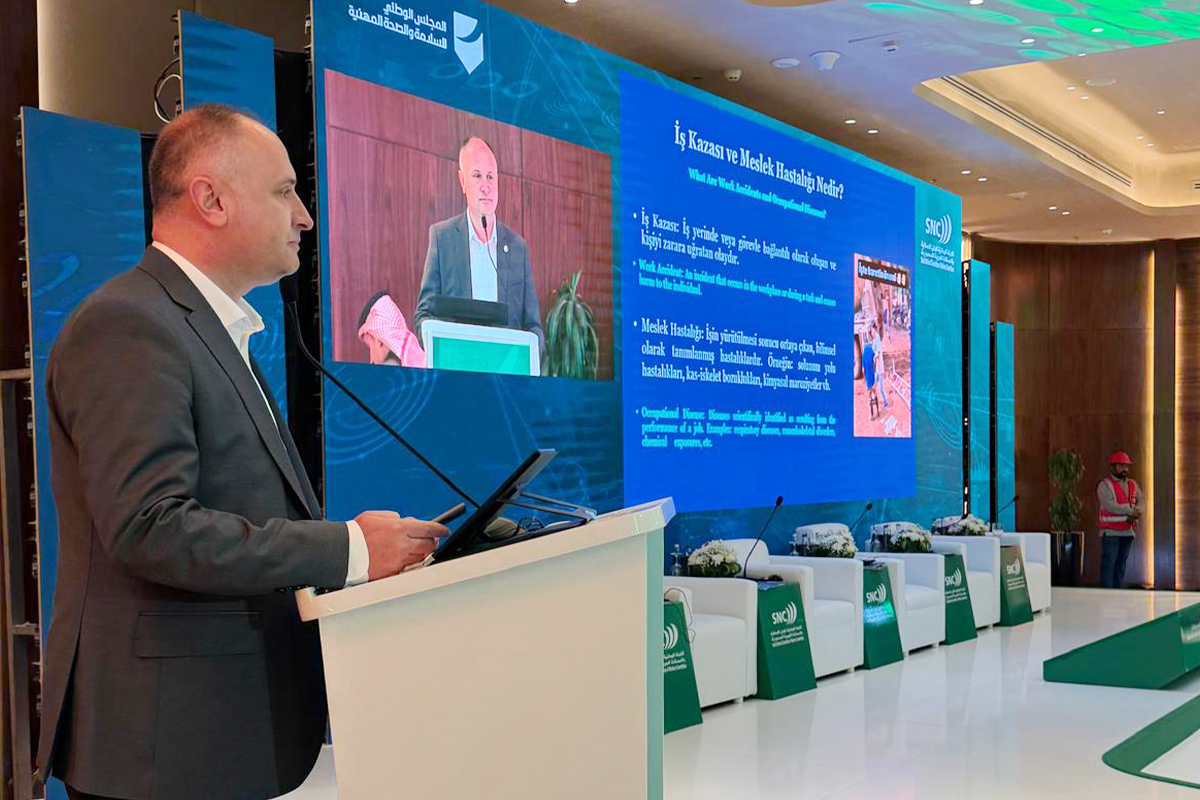
ILC Secretary General Öksüz Shares Views at the International Occupational Health and Safety Seminar in Riyadh
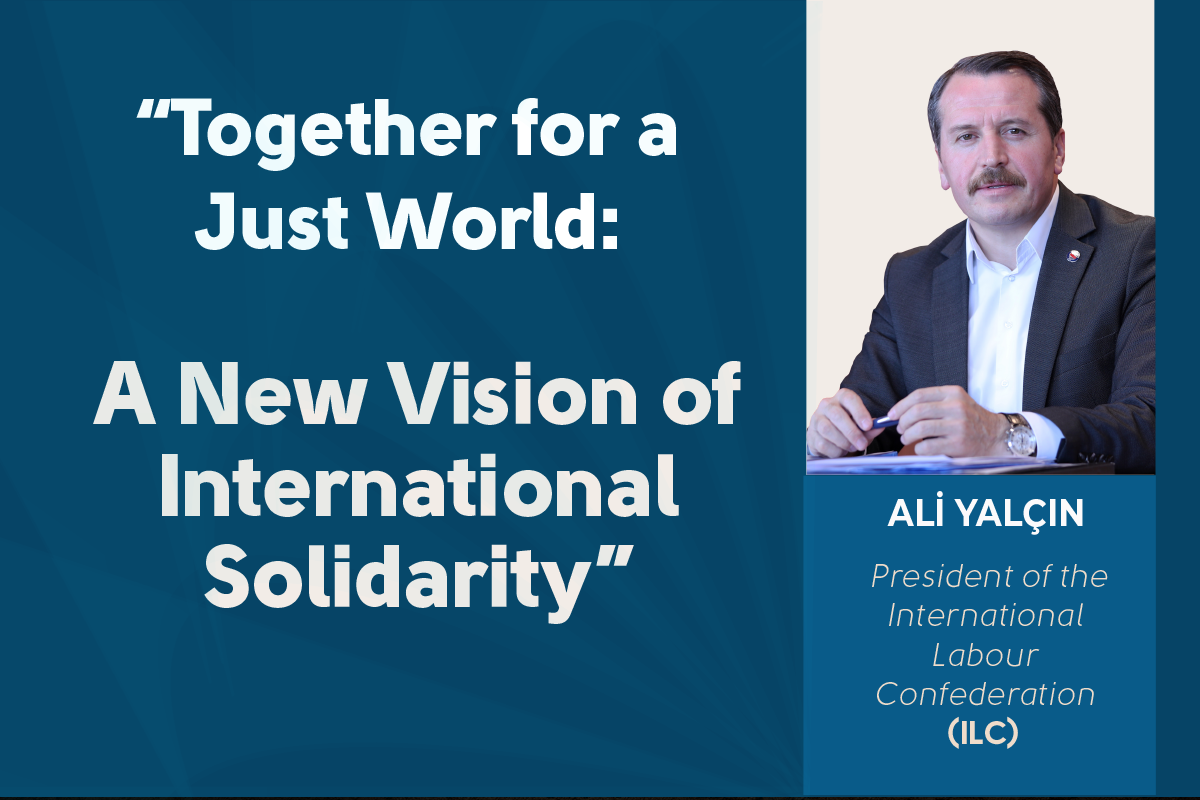
Yalçın: Together for a Just World: A New Vision of International Solidarity
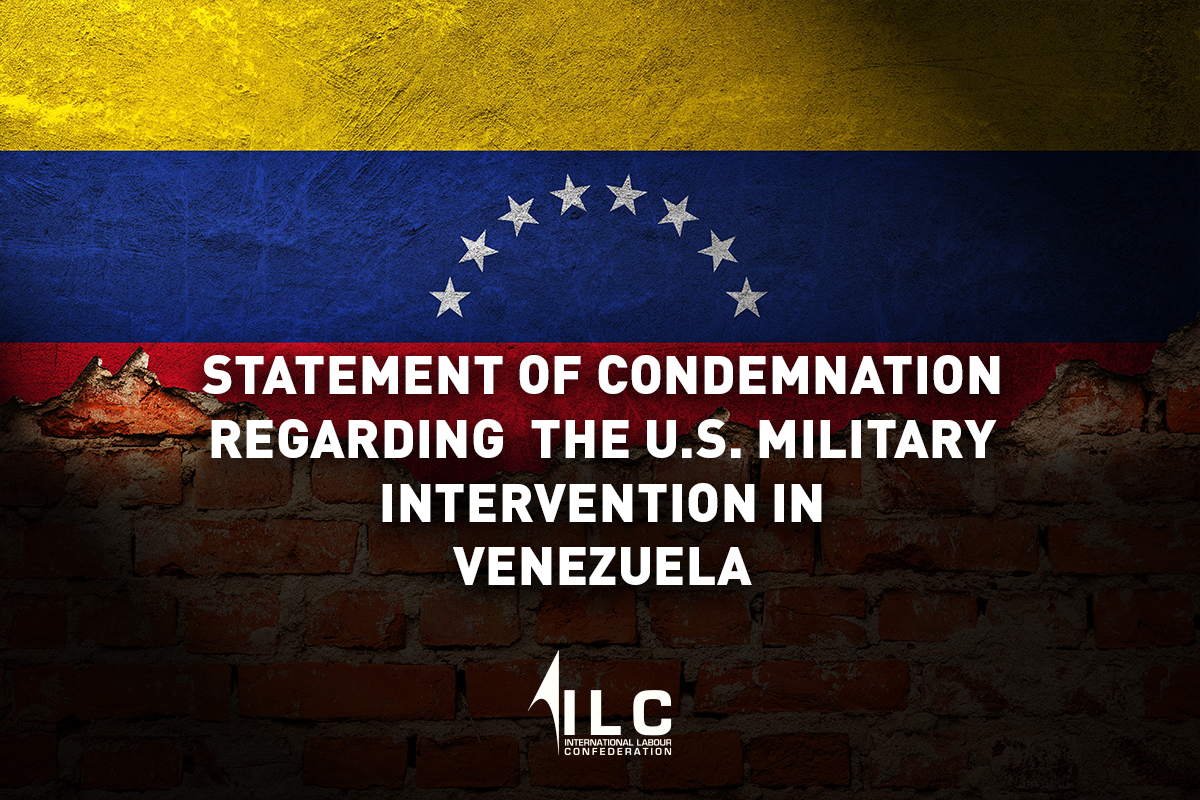
Statement Of Condemnation Regarding The U.S. Military Intervention in Venezuela
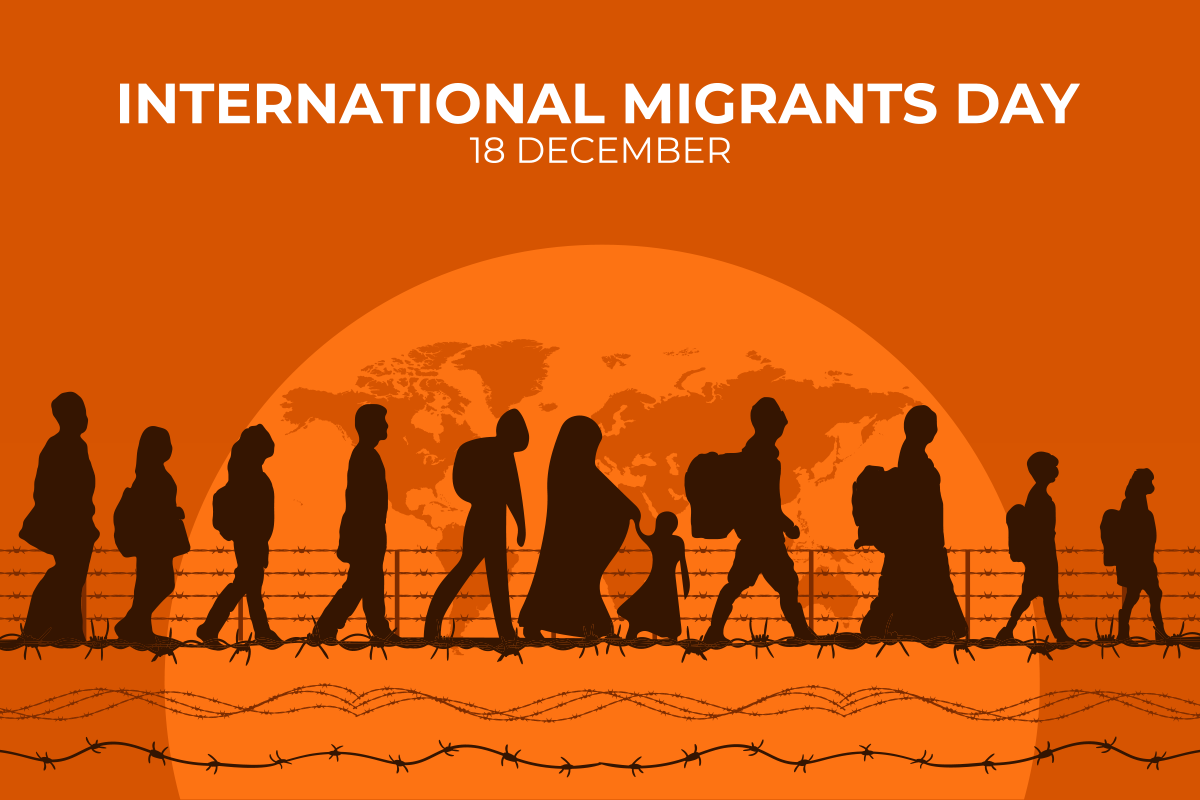
World Migrants Day Statement
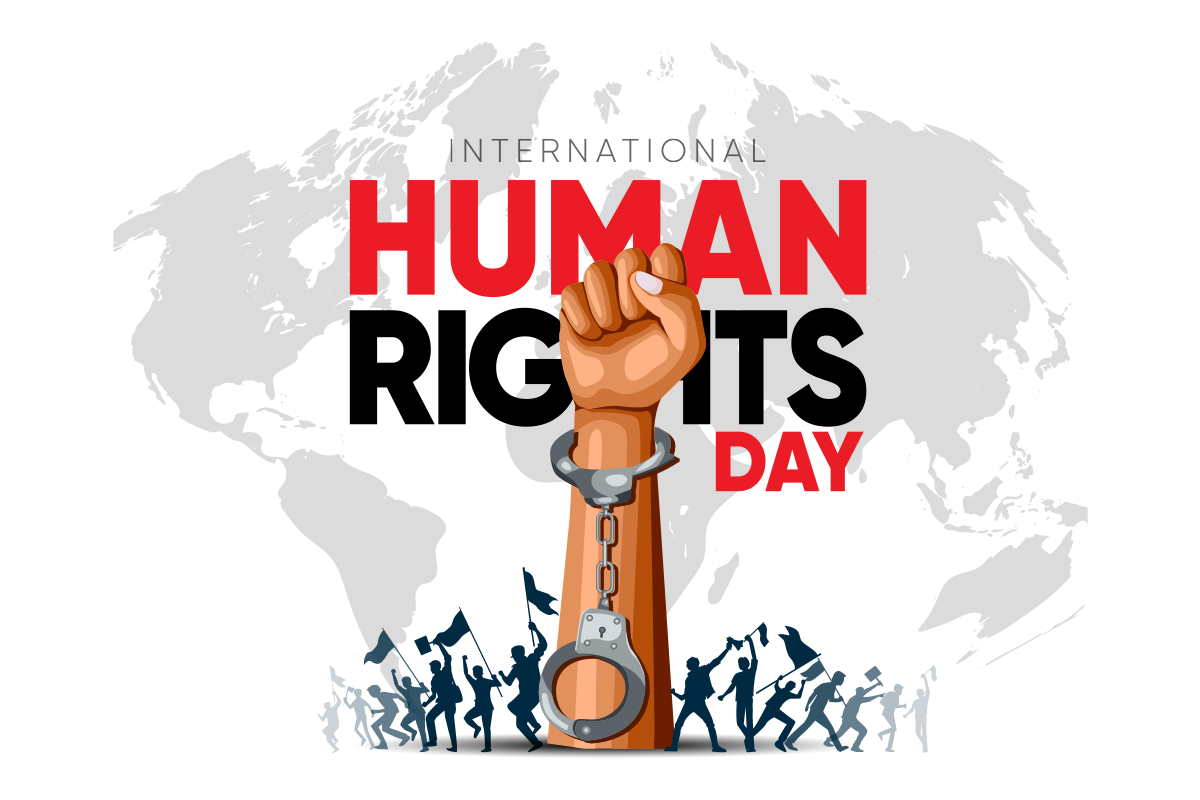
Human Rights Day
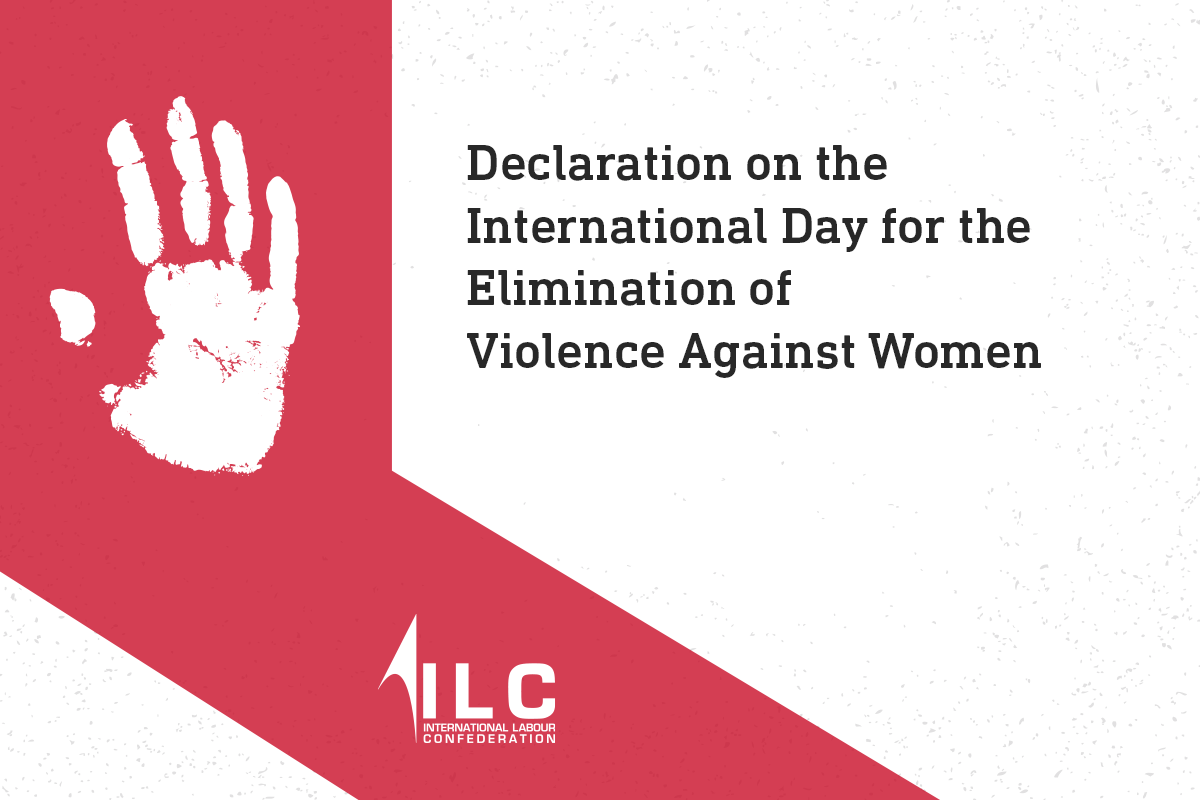
Declaration on the International Day for the Elimination of Violence Against Women

ILC Statement on the World Children’s Day

ILC–OATUU JOINT DECLARATION

ILC and OATUU Delegates Support the “Green Homeland” Campaign by Adopting Saplings
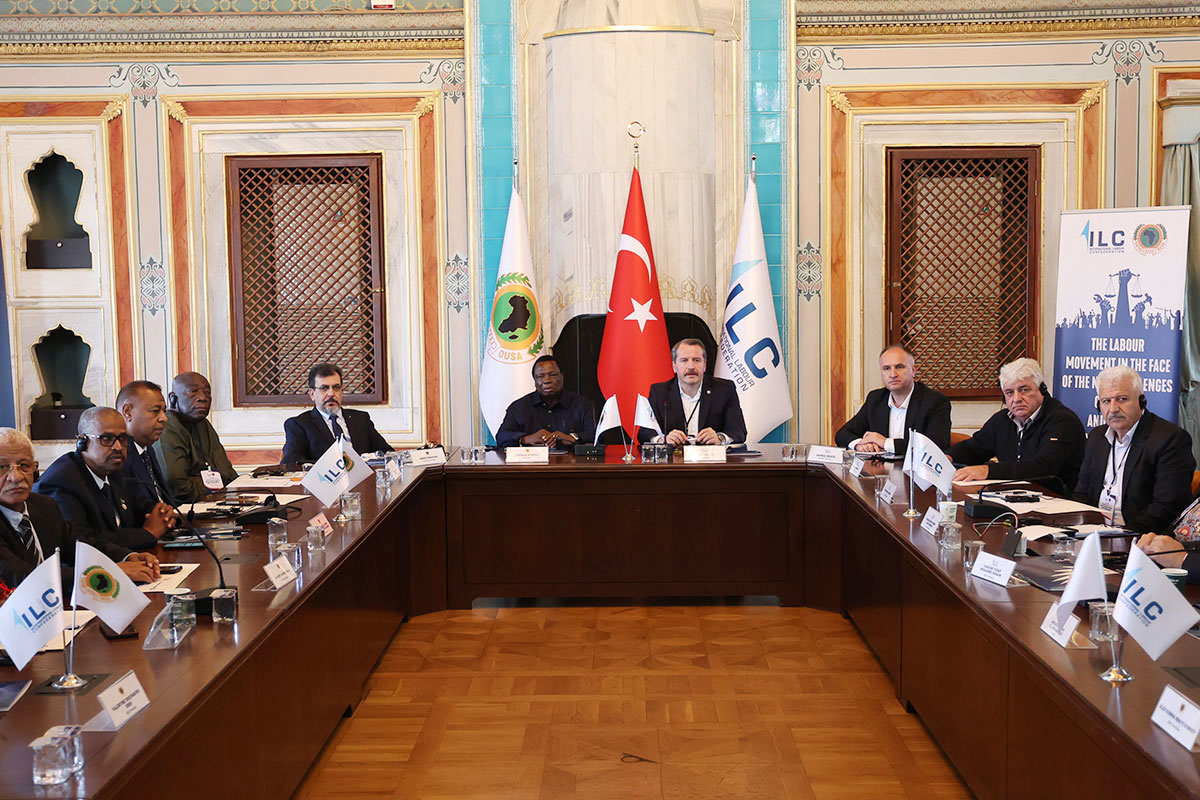
ILC and OATUU Discuss the Future of the Global Labour Movement in Istanbul
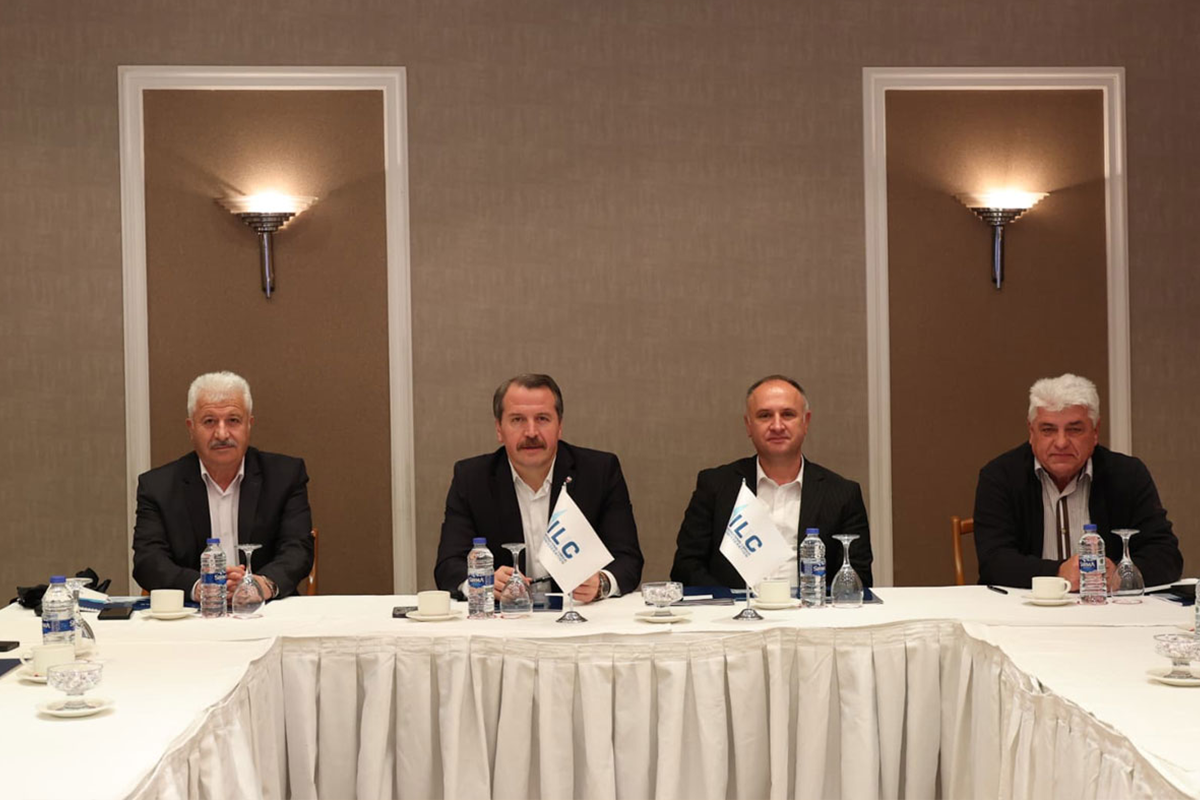
ILC Board of Directors Convened in Istanbul
